Top 10 Best Data Science PhD Online Programs

According to IBM, poor data quality costs the US economy around $3 trillion annually. Globally, that figure could be as high as $14 trillion. As a result, the demand for data scientists has soared in recent years, making a PhD in data science a highly sought-after degree.
Data scientists are highly skilled professionals who use cutting-edge technology to make sense of large, often unstructured, datasets. They are necessary for almost every industry to help provide analysis for a data-driven business environment. Data scientists use proven strategies such as clustering, behavioral analytics, and data mining to analyze and organize data to make informed decisions.
Becoming a data scientist requires a higher education to gain the necessary skills for this field. One of the best ways of doing so is earning a degree online. Better still, earning a data science PhD online will give you the most comprehensive set of tools required to advance your career.
Related Articles:
- Duties of a Typical Data Scientist
- What is a Data Science Ph.D Program Like?
- Does a Data Science Ph.D Significantly Increase Earning Power?
- How is a Data Science Degree Different from a Cybersecurity Degree?
- Tips for Finding Success in a Data Science Ph.D. Program

Methodology for Ranking the Best Online Data Sciene PhDs
A PhD in data science online is a great choice for data scientists who may not want to relocate or take time away from work. We looked at over 20 different doctoral programs in data science. We based our search on College Navigator and DataScience Community. This determined our top 10 for our data science PhD program ranking . We included data analytics doctoral programs in our search. The best programs had:
- limited residency requirements
- a highly interactive curriculum
- a variety of courses in data science
- support from expert-level faculty
We then based our data science PhD programs ranking on the following considerations and assigned points accordingly:
Student-to-Faculty Ratio
- 15:1 or less = 5 Points
- 16:1 to 20:1 = 3 Points
- Greater than 20:1 = 1 Point
Average Graduate Tuition
- Less than $10,000 per year = 5 Points
- $10,000 to $15,000 per year = 4 Points
- $15,001 to $20,000 per year = 3 Points
- $20,001 to $25,000 per year = 2 Points
- Greater than $25,000 per year = 1 Point
Cost is a factor we considered when developing our list. However, many PhD-level data science programs provide students with assistance to cover the cost of their tuition. We reviewed each school’s average graduate tuition rates from College Navigator, a website run by the National Center for Education Statistics. It provides information on institutions of higher education around the country.
Tuition rates can vary from program to program. We looked specifically at tuition rates for graduate school. Always consult the university to find out specifics related to their online PhD data science program. Check if they offer any financial aid or scholarships to reduce your overall cost.
Below are the best online doctorate degrees in data science based on our criteria. Our list highlights the best of the best in quality online doctorate in data science programs.
Data Science Doctorate Online Degree Programs Ranking
#1. capitol technology university – laurel maryland, doctor of philosophy (phd) in business analytics and data science.
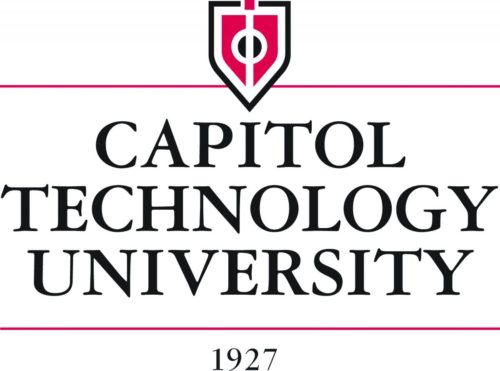
Program Website
- Student to Faculty Ratio: 9:1
- Average Graduate Tuition: $11,340/year
- Total Points: 9
Capitol Technology University offers our top data science online PhD. You will learn strategies and skills that prepare you for senior positions in the public or private sector. The low residency format allows you to balance your education with your established career. Most courses are offered online and cover areas like:
- analytics and decision analysis
- business intelligence
- machine learning
- data mining
- applied statistics and visualization for analytics
- Big Data warehousing and analytics systems
You must visit campus to complete your qualifying exam and work one-on-one and in groups to prepare for your dissertation. Core PhD in data analytics online courses are taught by working professionals who stay current on emerging developments in the field. You can feel confident you’re gaining professional skills that are in demand by top employers.
Program Pros:
- Most coursework is completed online
- Small class sizes
- Low average graduate tuition rate
- Tuition discounts for military
Program Cons:
- Abundance of program and institutional fees
- On-campus residency is required for some classes
#2. Dakota State University – Madison, South Dakota
Doctor of science in information systems.
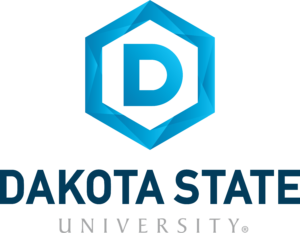
- Student to Faculty Ratio: 18:1
- Average Graduate Tuition: $5,999/year in-state; $11,199/year out-of-state
- Total Points: 8 (points were determined using in-state tuition)
DSU features one of the most flexible data science Doctor of Philosophy programs in this ranking. You can take courses online or on-campus and attend full or part-time. You can choose from three different areas of specialization as well:
- data management
- health care information systems
- information systems cybersecurity
- network administration and security
You can also choose to complete a general specialization. This requires you to take courses in application development, network administration and security, and data management. Core courses for all specializations cover relevant areas such as information systems, applied statistics, and web application development. You’ll also take classes in research, enterprise modeling, and data management, to name a few.
As a full-time student with a master’s degree, you should be able to complete this program in just three years. However, it can take as much as seven years to finish. When you graduate, you will have the tools needed to solve complex data science problems in a variety of settings, including academics, business and finance, and government.
- Multiple options for completing the program, including online or on-campus
- Multiple specialization options
- Just three years needed to complete the degree as a full-time master’s-level student
- Very low average in-state tuition
- Long list of knowledge requirements for admission
- High out-of-state tuition compared to in-state tuition
#3. Indiana Wesleyan University – Marion, Indiana
Online doctor of business administration – data analytics specialization.

- Student to Faculty Ratio: 17:1
- Average Graduate Tuition: $9,731/year
- Total Points: 8
This online program follows a cohort format, meaning you progress through the curriculum with the same classmates in each class. This format encourages the development of collegiality between you and your classmates and also enhances your working relationship with your professors.
The curriculum is problem-based. You’ll learn how to collect, analyze, organize, and interpret data. Many opportunities exist to enhance your writing and communication skills as well. Some of the courses you’ll take include the following:
- Data Analytics and Research
- Academic Writing for Business
- Foundations of Doctoral Research
- Leadership and Global-Based Teams
You must also complete a comprehensive examination, a scholar-practitioner paper, and an applied doctoral project.
The comprehensive examination must be completed prior to the applied doctoral project, and involves a critique of relevant research and a demonstration of your subject matter expertise. The purpose of the paper is to build the required research and writing skills to produce a piece worthy of submitting to industry journals. The doctoral project takes the place of a traditional dissertation. The project focuses on developing an evidence-based consulting report that directly addresses a real-world problem in the business world.
- Extremely affordable
- The applied doctoral project gives you real-world experience prior to graduating
- Data analytics focus is highly sought-after in business
- An on-campus residency is required
- The program includes a religious focus, which might conflict with your personal beliefs
#4. National University – San Diego, California
Doctor of philosophy in data science online.

- Student to Faculty Ratio: 16:1
- Average Graduate Tuition: $15,912/year
- Total Points: 6
National University features a research-oriented online PhD in data science that is aligned with industry needs. The unique one-on-one learning model provides unmatched personal attention – you’re paired with a professor for each course to give you the guidance you need to succeed.
New courses begin weekly and last eight weeks (except dissertation courses, which are 12 weeks long). This allows you to fit your education into your busy personal and professional schedule. This program includes courses that cover areas like big data development, data preparation methods, and data curation. You’ll also take courses such as:
- multivariate analysis
- data visualization and communication
- exploratory data analysis
- databases and business intelligence
- inferential and predictive analytics
You can complete this program in as little as three-and-a-half years. Once you graduate, you can pursue any number of data science-related careers. This includes database architecture, database administration, and data warehousing, among many others.
- One-on-one learning model provides the utmost support
- Program applications are accepted year-round
- Monthly program start dates
- High average graduate tuition rates compared to other programs on this list
#5. The University of Rhode Island – Kingston, Rhode Island
Online phd in computer science.

- Average Graduate Tuition: $15,402/year in-state; $29,904/year out-of-state
- Total Points: 6 (points were determined using in-state tuition)
The computer science PhD program at the University of Rhode Island is a flexible program available to you as a full- or part-time student. Most, but not all, computer science courses are available online, making it a good choice if you’re a professional in the Kingston area looking for a low-residency program.
Course offerings include options like Programming for Data Science, Data Structures and Abstractions, and Database Management Systems. All told, you must complete 52 or more credits of coursework, 18 dissertation research credits, and at least two credits of seminars.
You can earn your degree in four years, provided you study full-time. Admission is for the fall semester or spring semester; bear that in mind when applying to ensure you meet application deadlines for the next academic term.
- Full-time and part-time options are available
- A statistics PhD option is available
- Some on-campus coursework is required
- Expensive compared to other options on this list
#6. University of North Texas – Denton, Texas
Phd in information science-data science.
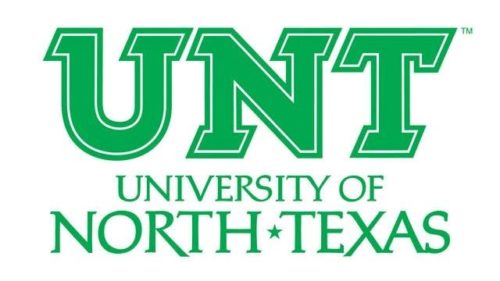
- Student to Faculty Ratio: 23:1
- Average Graduate Tuition: $7,160/year in-state; $14,720/year out-of-state
UNT’s Department of Information Science offers a PhD with interdisciplinary training. You will gain experience in doctoral research in data science and related areas that enhance your critical thinking skills, disciplinary thinking, and research capabilities. The program offers numerous concentration areas, allowing you to specialize your degree according to your interests. The available specializations are as follows:
- Consumer Behavior and Experience Management
- Cybersecurity
- Data Science
- Geospatial Information Science
- Health Informatics
- Knowledge Management
- Linguistics
Though most coursework is online, you must come to campus for a residential experience that gives you a high level of interaction with your professors. The faculty in this program are all highly experienced and provide real-world guidance to support your theoretical learning.
UNT is committed to keeping costs affordable. The university offers various financial aid opportunities, including grants, competitive scholarships, fellowships, and assistantship opportunities.
- Interdisciplinary curriculum
- Low in-state tuition
- Extremely high student-to-faculty ratio
#7. Johns Hopkins University – Baltimore, Maryland
Drph in health policy and management-public health informatics.

Program Websi te
- Student to Faculty Ratio: 6:1
- Average Graduate Tuition: $62,840/year
The Bloomberg School of Public Health at Johns Hopkins University features an online Doctor of Public Health with a concentration in health policy and management. Within the concentration is a track in public health informatics. It is delivered in a flexible part-time format. This data science-related doctorate degree requires you to complete a series of high-level courses in addition to a practicum experience during which you apply what you’ve learned in your courses in a public health informatics setting. A dissertation is also required.
Some of the courses you’ll take include the following:
- Statistical Reasoning in Public Health
- Advanced Data Analysis Workshop
- Qualitative Research Theory and Methods
- Introduction to Qualitative Data Analysis for Public Health
- Mixed Methods for Research in Public Health
Once you graduate, you can seek employment in mid- to senior-level positions in government agencies, non-profit organizations, or international public health organizations.
- Johns Hopkins is a prestigious university
- Healthcare-focused data science degree has high value
- The program can be completed entirely online
- Extremely expensive
- A Master of Public Health is required to apply
#8. Grand Canyon University – Phoenix, Arizona
Dba degree in data analytics – quantitative.

- Student to Faculty Ratio: 20:1
- Average Graduate Tuition: $10,138/year
- Total Points: 5
Grand Canyon University features an online, cost-effective DBA in data analytics that focuses on evidence-based theories and practices. You will learn to use statistical tools to clean numerical data, determine data’s reliability, and conduct data analyses. You’ll gain these skills in courses like:
- Analytic Foundations for Business Leaders
- Approaches to Research Design and Data Analysis
- Emerging Issues in Financial Management
- Foundations of Research Design
- Enterprise Data Complexity
You will also complete a dissertation. Unlike traditional PhD programs, this one requires you to begin the dissertation from the outset. You’ll work closely with faculty members to conduct original research and utilize what you learn to inform a detailed data analytics dissertation.
This program allows you to complete your coursework where and when it’s convenient. However, you must come to campus for two or three five-day residencies in Phoenix. These on-campus experiences allow you to network with other students and participate in mentorship opportunities and professional development with faculty members.
- Emphasis on mentorship from faculty members
- Quantitative research focus has wide applicability for careers
- Several on-campus residencies are required
- Program is designed specifically for business executives, which may preclude you from applying
#9. Colorado Technical University – Colorado Springs, Colorado
Doctor of computer science – big data analytics.
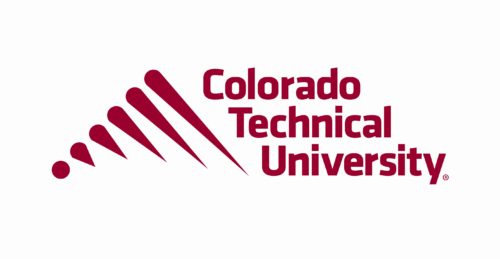
- Student to Faculty Ratio: 31:1
- Average Graduate Tuition: $14,104/year
The online doctorate in big data analytics from Colorado Technical University helps you learn the latest industry tools to produce meaningful insights from unstructured data. The data science curriculum is primarily delivered online, so you can build your course schedule around other obligations. Multiple start dates are offered throughout the year as well.
Another advantage of this program is that courses begin every five weeks, so that you can begin at your convenience. Despite requiring 100 credits to graduate, you can complete this degree in about three years of full-time studies. During that time, you’ll take courses focusing on:
- Advanced Topics in Database Systems
- Advanced Quantitative Analysis
- Artificial Intelligence in Real World Problem Solving
- Business Intelligence
- Futuring and Innovation
The big data analytics specialty also requires completing a research proposal and a dissertation. You’ll work on each project extensively throughout the program in preparation for defending your dissertation before graduation.
- Training in big data is in high demand in business and industry
- Fully online program
- Poor student-to-faculty ratio
- The program does not lead to licensure or certification
#10. University of the Southwest – Hobbs, New Mexico
Dba – data analytics.

- Student to Faculty Ratio: 19:1
- Average Graduate Tuition: $23,364/year
The University of the Southwest is a private, non-profit Christian university offering accredited degrees to online students. USW features an online doctorate in data analytics that prepares you to solve business challenges using a quantitative research approach. This data science program follows a mentorship model. You will work closely with faculty members to achieve your professional goals while benefitting from their real-world expertise.
This program’s coursework is delivered 100% online and there are no required residencies (though you have the option of participating in an on-campus or online residency if you choose). The curriculum focuses on foundational business data analytics skills. This includes data visualization, predictive modeling, and forecasting, to name a few.
A free laptop is included with the first course. There is no additional cost for textbooks or course materials – these components are included with tuition. You also benefit from a transfer policy allowing you to use up to 12 credits earned in a program from another regionally accredited university.
- The program is completely online
- Data analytics skills are widely applicable in various businesses and industries
- Free laptop, textbooks, and other course materials
- Relatively expensive tuition
- At least three years of data analytics experience is required for admission
Frequently Asked Questions
Is a phd in data science worth it.
A PhD in data science is the most advanced level of data science education available and can take years to complete. By the end, you’ll have a wide span of knowledge and understanding of the data science field. You will also have the education you’ll need to get top positions in research and academia.
A PhD is typically a research-oriented program. It can take some time before you hit a financial payoff after earning your PhD. High-paying jobs, such as data scientist jobs requiring a PhD, also usually require significant experience. You’ll need to be patient!
The decision to earn a PhD is not to be taken lightly. There are many benefits (as well as some downsides) of getting a PhD in data science.
Advantages:
- Research is a key piece of earning a PhD. You can conduct research during your dissertation that could advance the industry or solve a long-standing issue. Very exciting!
- There are several specializations in data science. Some master’s degree programs even offer concentration areas that PhD programs can build upon. Areas like biomedical data science, health informatics, and business analytics allow you to build upon your previous education and make meaningful contributions to the field.
- University partnerships provide you with the opportunity to work with real data sets. You can collaborate with others on research efforts, gaining new perspectives and insights.
- Some programs accept students with only a bachelor’s degree. Popular bachelor’s degree majors include analytics and computer science. You can earn a master’s while pursuing a PhD!
- Graduates with a PhD may see an increase in job opportunities in areas like academia and research.
Potential Disadvantages:
- A PhD takes a significant amount of time to complete. If you opt to complete a full-time program, you could be missing out on three to five years of financial earnings and real-world skill development.
- You’ll need to find a way to fund your PhD. Some students finance their degree on their own with the help of financial aid. Others apply to programs that fully fund students and offer stipends.
- Technology changes rapidly. Your time spent completing research could take away from gaining on-the-job industry data analysis knowledge and skills.
- Make certain your desired position requires a PhD. Many industries are perfectly happy with a bachelor’s degree or master’s in data science. It could also be a related area like computer science, as long as the applicant has relevant work experience.
If you decide to pursue a PhD, your hard work and commitment to your doctoral program and the field of data science will eventually pay off. You’ll be eligible for some of the field’s highest-paying and most prestigious jobs.
What jobs are available to a data scientist with a PhD?
Whether you complete your data science PhD online or on-campus, the job prospects are the same. A PhD can open the door to various exciting data science careers. Data science PhD graduates are primarily in demand in academic and industrial settings.
PhD data science programs are the primary avenue for getting a data-related position in academia. These positions can be fiercely competitive, though. Data science grads who can stay up to date on the latest trends and technologies are highly sought after. Business intelligence and machine learning are two specialized areas in demand by industry executives.
How long does it take to get a PhD in Data Science?
A data science doctoral program is a significant investment of time and money. You can expect to spend three to four years working on your PhD in data science. The specific amount of time it takes to complete a doctoral program in data science is determined by the degree requirements and your schedule.
Hybrid and online data science programs usually provide extra flexibility if you have a non-traditional schedule (e.g., you work a regular 8-5 job). Accelerated doctoral program options may be a great option for completing your doctorate in data science, saving you time and money along the way.
What are the requirements for a PhD in data science degree program?
Admissions requirements.
Admission to a PhD program is extremely competitive. Because of the intense nature of the program, an extremely limited number of doctoral degree applicants are accepted each year. You must submit a strong application packet that makes you stand out from the competition.
You should have a minimum of a master’s degree with a cumulative GPA of at least 3.0 on a 4.0 scale. This does not need to be from a data science masters program , but of course, it will help. Some online data science programs may also require you to submit letters of recommendation, a statement of purpose, and GRE scores. You might also be required to provide a curriculum vitae or a resume. In some instances, an interview (either in person or web-based video) may also be required.
A doctorate degree is typically comprised of several different parts. These include the following:
Coursework:
A PhD in data science requires coursework that helps build a strong educational foundation. Core courses may cover areas that include:
- statistical methods
- knowledge management
- machine learning.
Comprehensive Exam:
Before beginning the doctoral dissertation process, you may need to complete a comprehensive examination. This exam allows faculty to assess your level of knowledge and understanding of the field before beginning your dissertation.
Dissertation Proposal
The dissertation proposal is a comprehensive statement describing the research you want to accomplish. As part of this process, you will:
- state your research question
- discuss the general scope of your project
- discuss how you’ll do it
- explain how it contributes value to the field
Dissertation Research:
Dissertation research is the final piece of doctoral study. You complete the dissertation research project you designed and summarize your research and findings in your dissertation paper.
Field Experience:
Some data science graduate programs require you to complete a field experience as part of the curriculum. You may work with an outside organization or a research center on-campus to create original research or solve a real-world data science problem.
Special Projects:
Many data science doctoral programs offer you the opportunity to participate in special projects. These unique professional development opportunities allow you to develop areas of specialized knowledge that can help them build your resume.
Will I need any licenses or certificates to get a job in data science?
There’s no standard industry license or certification for data science professionals. Data professionals who want to stand out from the competition have a variety of certification options available. These specialized training programs allow you to develop technical skills that recruiters and hiring managers look for. Some popular certifications include:
Cloudera Data Platform (CDP) Generalist Certification
This certification validates proficiency with the Cloudera platform. Certification applies to multiple roles including, data analysts, developers, and system architects. The exam takes 90 minutes to complete and consists of 60 questions.
Data Science Council of America (DASCA) Principal Data Scientist
The Data Science Council of America is an industry leader for professional development opportunities in data science. It offers the Principal Data Science (PDS) certification, which is designed for professionals with at least ten years of experience working with big data. The primary audience is “seasoned and high-achiever data science thought and practice leaders.” The certificate is awarded after meeting eligibility criteria and passing a self-paced online exam. At a minimum, completing the certification process will take several months. You have a year to finish, though.
Microsoft Certified Azure AI Fundamentals
If you want a certification to validate your knowledge and skills in machine learning and artificial intelligence related to Azure services, this might be the certificate for you. This is a fundamental certification, so it’s great if you’re new to AI and need to demonstrate your proficiency to your employer. The certification test takes 45 minutes to complete.
DiscoverDataScience.org
PhD in Data Science – Your Guide to Choosing a Doctorate Degree Program

Created by aasif.faizal
Professional opportunities in data science are growing incredibly fast. That’s great news for students looking to pursue a career as a data scientist. But it also means that there are a lot more options out there to investigate and understand before developing the best educational path for you.
A PhD is the most advanced data science degree you can get, reflecting a depth of knowledge and technical expertise that will put you at the top of your field.

This means that PhD programs are the most time-intensive degree option out there, typically requiring that students complete dissertations involving rigorous research. This means that PhDs are not for everyone. Indeed, many who work in the world of big data hold master’s degrees rather than PhDs, which tend to involve the same coursework as PhD programs without a dissertation component. However, for the right candidate, a PhD program is the perfect choice to become a true expert on your area of focus.
If you’ve concluded that a data science PhD is the right path for you, this guide is intended to help you choose the best program to suit your needs. It will walk through some of the key considerations while picking graduate data science programs and some of the nuts and bolts (like course load and tuition costs) that are part of the data science PhD decision-making process.
Data Science PhD vs. Masters: Choosing the right option for you
If you’re considering pursuing a data science PhD, it’s worth knowing that such an advanced degree isn’t strictly necessary in order to get good work opportunities. Many who work in the field of big data only hold master’s degrees, which is the level of education expected to be a competitive candidate for data science positions.
So why pursue a data science PhD?
Simply put, a PhD in data science will leave you qualified to enter the big data industry at a high level from the outset.
You’ll be eligible for advanced positions within companies, holding greater responsibilities, keeping more direct communication with leadership, and having more influence on important data-driven decisions. You’re also likely to receive greater compensation to match your rank.
However, PhDs are not for everyone. Dissertations require a great deal of time and an interest in intensive research. If you are eager to jumpstart a career quickly, a master’s program will give you the preparation you need to hit the ground running. PhDs are appropriate for those who want to commit their time and effort to schooling as a long-term investment in their professional trajectory.
For more information on the difference between data science PhD’s and master’s programs, take a look at our guide here.
Topics include:
- Can I get an Online Ph.D in Data Science?
- Overview of Ph.d Coursework
Preparing for a Doctorate Program
Building a solid track record of professional experience, things to consider when choosing a school.
- What Does it Cost to Get a Ph.D in Data Science?
- School Listings

Data Science PhD Programs, Historically
Historically, data science PhD programs were one of the main avenues to get a good data-related position in academia or industry. But, PhD programs are heavily research oriented and require a somewhat long term investment of time, money, and energy to obtain. The issue that some data science PhD holders are reporting, especially in industry settings, is that that the state of the art is moving so quickly, and that the data science industry is evolving so rapidly, that an abundance of research oriented expertise is not always what’s heavily sought after.
Instead, many companies are looking for candidates who are up to date with the latest data science techniques and technologies, and are willing to pivot to match emerging trends and practices.
One recent development that is making the data science graduate school decisions more complex is the introduction of specialty master’s degrees, that focus on rigorous but compact, professional training. Both students and companies are realizing the value of an intensive, more industry-focused degree that can provide sufficient enough training to manage complex projects and that are more client oriented, opposed to research oriented.
However, not all prospective data science PhD students are looking for jobs in industry. There are some pretty amazing research opportunities opening up across a variety of academic fields that are making use of new data collection and analysis tools. Experts that understand how to leverage data systems including statistics and computer science to analyze trends and build models will be in high demand.
Can You Get a PhD in Data Science Online?
While it is not common to get a data science Ph.D. online, there are currently two options for those looking to take advantage of the flexibility of an online program.
Indiana University Bloomington and Northcentral University both offer online Ph.D. programs with either a minor or specialization in data science.
Given the trend for schools to continue increasing online offerings, expect to see additional schools adding this option in the near future.

Overview of PhD Coursework
A PhD requires a lot of academic work, which generally requires between four and five years (sometimes longer) to complete.
Here are some of the high level factors to consider and evaluate when comparing data science graduate programs.
How many credits are required for a PhD in data science?
On average, it takes 71 credits to graduate with a PhD in data science — far longer (almost double) than traditional master’s degree programs. In addition to coursework, most PhD students also have research and teaching responsibilities that can be simultaneously demanding and really great career preparation.
What’s the core curriculum like?
In a data science doctoral program, you’ll be expected to learn many skills and also how to apply them across domains and disciplines. Core curriculums will vary from program to program, but almost all will have a core foundation of statistics.
All PhD candidates will have to take a qualifying exam. This can vary from university to university, but to give you some insight, it is broken up into three phases at Yale. They have a practical exam, a theory exam and an oral exam. The goal is to make sure doctoral students are developing the appropriate level of expertise.
Dissertation
One of the final steps of a PhD program involves presenting original research findings in a formal document called a dissertation. These will provide background and context, as well as findings and analysis, and can contribute to the understanding and evolution of data science. A dissertation idea most often provides the framework for how a PhD candidate’s graduate school experience will unfold, so it’s important to be thoughtful and deliberate while considering research opportunities.
Since data science is such a rapidly evolving field and because choosing the right PhD program is such an important factor in developing a successful career path, there are some steps that prospective doctoral students can take in advance to find the best-fitting opportunity.
Join professional associations
Even before being fully credentials, joining professional associations and organizations such as the Data Science Association and the American Association of Big Data Professionals is a good way to get exposure to the field. Many professional societies are welcoming to new members and even encourage student participation with things like discounted membership fees and awards and contest categories for student researchers. One of the biggest advantages to joining is that these professional associations bring together other data scientists for conference events, research-sharing opportunities, networking and continuing education opportunities.
Leverage your social network
Be on the lookout to make professional connections with professors, peers, and members of industry. There are a number of LinkedIn groups dedicated to data science. A well-maintained professional network is always useful to have when looking for advice or letters of recommendation while applying to graduate school and then later while applying for jobs and other career-related opportunities.
Kaggle competitions
Kaggle competitions provide the opportunity to solve real-world data science problems and win prizes. A list of data science problems can be found at Kaggle.com . Winning one of these competitions is a good way to demonstrate professional interest and experience.
Internships
Internships are a great way to get real-world experience in data science while also getting to work for top names in the world of business. For example, IBM offers a data science internship which would also help to stand out when applying for PhD programs, as well as in seeking employment in the future.
Demonstrating professional experience is not only important when looking for jobs, but it can also help while applying for graduate school. There are a number of ways for prospective students to gain exposure to the field and explore different facets of data science careers.
Get certified
There are a number of data-related certificate programs that are open to people with a variety of academic and professional experience. DeZyre has an excellent guide to different certifications, some of which might help provide good background for graduate school applications.
Conferences
Conferences are a great place to meet people presenting new and exciting research in the data science field and bounce ideas off of newfound connections. Like professional societies and organizations, discounted student rates are available to encourage student participation. In addition, some conferences will waive fees if you are presenting a poster or research at the conference, which is an extra incentive to present.

It can be hard to quantify what makes a good-fit when it comes to data science graduate school programs. There are easy to evaluate factors, such as cost and location, and then there are harder to evaluate criteria such as networking opportunities, accessibility to professors, and the up-to-dateness of the program’s curriculum.
Nevertheless, there are some key relevant considerations when applying to almost any data science graduate program.
What most schools will require when applying:
- All undergraduate and graduate transcripts
- A statement of intent for the program (reason for applying and future plans)
- Letters of reference
- Application fee
- Online application
- A curriculum vitae (outlining all of your academic and professional accomplishments)
What Does it Cost to Get a PhD in Data Science?
The great news is that many PhD data science programs are supported by fellowships and stipends. Some are completely funded, meaning the school will pay tuition and basic living expenses. Here are several examples of fully funded programs:
- University of Southern California
- University of Nevada, Reno
- Kennesaw State University
- Worcester Polytechnic Institute
- University of Maryland
For all other programs, the average range of tuition, depending on the school can range anywhere from $1,300 per credit hour to $2,000 amount per credit hour. Remember, typical PhD programs in data science are between 60 and 75 credit hours, meaning you could spend up to $150,000 over several years.
That’s why the financial aspects are so important to evaluate when assessing PhD programs, because some schools offer full stipends so that you are able to attend without having to find supplemental scholarships or tuition assistance.
Can I become a professor of data science with a PhD.? Yes! If you are interested in teaching at the college or graduate level, a PhD is the degree needed to establish the full expertise expected to be a professor. Some data scientists who hold PhDs start by entering the field of big data and pivot over to teaching after gaining a significant amount of work experience. If you’re driven to teach others or to pursue advanced research in data science, a PhD is the right degree for you.
Do I need a master’s in order to pursue a PhD.? No. Many who pursue PhDs in Data Science do not already hold advanced degrees, and many PhD programs include all the coursework of a master’s program in the first two years of school. For many students, this is the most time-effective option, allowing you to complete your education in a single pass rather than interrupting your studies after your master’s program.
Can I choose to pursue a PhD after already receiving my master’s? Yes. A master’s program can be an opportunity to get the lay of the land and determine the specific career path you’d like to forge in the world of big data. Some schools may allow you to simply extend your academic timeline after receiving your master’s degree, and it is also possible to return to school to receive a PhD if you have been working in the field for some time.
If a PhD. isn’t necessary, is it a waste of time? While not all students are candidates for PhDs, for the right students – who are keen on doing in-depth research, have the time to devote to many years of school, and potentially have an interest in continuing to work in academia – a PhD is a great choice. For more information on this question, take a look at our article Is a Data Science PhD. Worth It?
Complete List of Data Science PhD Programs
Below you will find the most comprehensive list of schools offering a doctorate in data science. Each school listing contains a link to the program specific page, GRE or a master’s degree requirements, and a link to a page with detailed course information.
Note that the listing only contains true data science programs. Other similar programs are often lumped together on other sites, but we have chosen to list programs such as data analytics and business intelligence on a separate section of the website.
Boise State University – Boise, Idaho PhD in Computing – Data Science Concentration
The Data Science emphasis focuses on the development of mathematical and statistical algorithms, software, and computing systems to extract knowledge or insights from data.
In 60 credits, students complete an Introduction to Graduate Studies, 12 credits of core courses, 6 credits of data science elective courses, 10 credits of other elective courses, a Doctoral Comprehensive Examination worth 1 credit, and a 30-credit dissertation.
Electives can be taken in focus areas such as Anthropology, Biometry, Ecology/Evolution and Behavior, Econometrics, Electrical Engineering, Earth Dynamics and Informatics, Geoscience, Geostatistics, Hydrology and Hydrogeology, Materials Science, and Transportation Science.
Delivery Method: Campus GRE: Required 2022-2023 Tuition: $7,236 total (Resident), $24,573 total (Non-resident)
View Course Offerings
Bowling Green State University – Bowling Green, Ohio Ph.D. in Data Science
Data Science students at Bowling Green intertwine knowledge of computer science with statistics.
Students learn techniques in analyzing structured, unstructured, and dynamic datasets.
Courses train students to understand the principles of analytic methods and articulating the strengths and limitations of analytical methods.
The program requires 60 credit hours in the studies of Computer Science (6 credit hours), Statistics (6 credit hours), Data Science Exploration and Communication, Ethical Issues, Advanced Data Mining, and Applied Data Science Experience.
Students must also complete 21 credit hours of elective courses, a qualifying exam, a preliminary exam, and a dissertation.
Delivery Method: Campus GRE: Required 2022-2023 Tuition: $8,418 (Resident), $14,410 (Non-resident)
Brown University – Providence, Rhode Island PhD in Computer Science – Concentration in Data Science
Brown University’s database group is a world leader in systems-oriented database research; they seek PhD candidates with strong system-building skills who are interested in researching TupleWare, MLbase, MDCC, Crowd DB, or PIQL.
In order to gain entrance, applicants should consider first doing a research internship at Brown with this group. Other ways to boost an application are to take and do well at massive open online courses, do an internship at a large company, and get involved in a large open-source software project.
Coding well in C++ is preferred.
Delivery Method: Campus GRE: Required 2022-2023 Tuition: $62,680 total
Chapman University – Irvine, California Doctorate in Computational and Data Sciences
Candidates for the doctorate in computational and data science at Chapman University begin by completing 13 core credits in basic methodologies and techniques of computational science.
Students complete 45 credits of electives, which are personalized to match the specific interests and research topics of the student.
Finally, students complete up to 12 credits in dissertation research.
Applicants must have completed courses in differential equations, data structures, and probability and statistics, or take specific foundation courses, before beginning coursework toward the PhD.
Delivery Method: Campus GRE: Required 2022-2023 Tuition: $37,538 per year
Clemson University / Medical University of South Carolina (MUSC) – Joint Program – Clemson, South Carolina & Charleston, South Carolina Doctor of Philosophy in Biomedical Data Science and Informatics – Clemson
The PhD in biomedical data science and informatics is a joint program co-authored by Clemson University and the Medical University of South Carolina (MUSC).
Students choose one of three tracks to pursue: precision medicine, population health, and clinical and translational informatics. Students complete 65-68 credit hours, and take courses in each of 5 areas: biomedical informatics foundations and applications; computing/math/statistics/engineering; population health, health systems, and policy; biomedical/medical domain; and lab rotations, seminars, and doctoral research.
Applicants must have a bachelor’s in health science, computing, mathematics, statistics, engineering, or a related field, and it is recommended to also have competency in a second of these areas.
Program requirements include a year of calculus and college biology, as well as experience in computer programming.
Delivery Method: Campus GRE: Required 2022-2023 Tuition: $10,858 total (South Carolina Resident), $22,566 total (Non-resident)
View Course Offerings – Clemson
George Mason University – Fairfax, Virginia Doctor of Philosophy in Computational Sciences and Informatics – Emphasis in Data Science
George Mason’s PhD in computational sciences and informatics requires a minimum of 72 credit hours, though this can be reduced if a student has already completed a master’s. 48 credits are toward graduate coursework, and an additional 24 are for dissertation research.
Students choose an area of emphasis—either computer modeling and simulation or data science—and completed 18 credits of the coursework in this area. Students are expected to completed the coursework in 4-5 years.
Applicants to this program must have a bachelor’s degree in a natural science, mathematics, engineering, or computer science, and must have knowledge and experience with differential equations and computer programming.
Delivery Method: Campus GRE: Required 2022-2023 Tuition: $13,426 total (Virginia Resident), $35,377 total (Non-resident)
Harrisburg University of Science and Technology – Harrisburg, Pennsylvania Doctor of Philosophy in Data Sciences
Harrisburg University’s PhD in data science is a 4-5 year program, the first 2 of which make up the Harrisburg master’s in analytics.
Beyond this, PhD candidates complete six milestones to obtain the degree, including 18 semester hours in doctoral-level courses, such as multivariate data analysis, graph theory, machine learning.
Following the completion of ANLY 760 Doctoral Research Seminar, students in the program complete their 12 hours of dissertation research bringing the total program hours to 36.
Delivery Method: Campus GRE: Required 2022-2023 Tuition: $14,940 total
Icahn School of Medicine at Mount Sinai – New York, New York Genetics and Data Science, PhD
As part of the Biomedical Science PhD program, the Genetics and Data Science multidisciplinary training offers research opportunities that expand on genetic research and modern genomics. The training also integrates several disciplines of biomedical sciences with machine learning, network modeling, and big data analysis.
Students in the Genetics and Data Science program complete a predetermined course schedule with a total of 64 credits and 3 years of study.
Additional course requirements and electives include laboratory rotations, a thesis proposal exam and thesis defense, Computer Systems, Intro to Algorithms, Machine Learning for Biomedical Data Science, Translational Genomics, and Practical Analysis of a Personal Genome.
Delivery Method: Campus GRE: Not Required 2022-2023 Tuition: $31,303 total
Indiana University-Purdue University Indianapolis – Indianapolis, Indiana PhD in Data Science PhD Minor in Applied Data Science
Doctoral candidates pursuing the PhD in data science at Indiana University-Purdue must display competency in research, data analytics, and at management and infrastructure to earn the degree.
The PhD is comprised of 24 credits of a data science core, 18 credits of methods courses, 18 credits of a specialization, written and oral qualifying exams, and 30 credits of dissertation research. All requirements must be completed within 7 years.
Applicants are generally expected to have a master’s in social science, health, data science, or computer science.
Currently a majority of the PhD students at IUPUI are funded by faculty grants and two are funded by the federal government. None of the students are self funded.
IUPUI also offers a PhD Minor in Applied Data Science that is 12-18 credits. The minor is open to students enrolled at IUPUI or IU Bloomington in a doctoral program other than Data Science.
Delivery Method: Campus GRE: Required 2022-2023 Tuition: $9,228 per year (Indiana Resident), $25,368 per year (Non-resident)
Jackson State University – Jackson, Mississippi PhD Computational and Data-Enabled Science and Engineering
Jackson State University offers a PhD in computational and data-enabled science and engineering with 5 concentration areas: computational biology and bioinformatics, computational science and engineering, computational physical science, computation public health, and computational mathematics and social science.
Students complete 12 credits of common core courses, 12 credits in the specialization, 24 credits of electives, and 24 credits in dissertation research.
Students may complete the doctoral program in as little as 5 years and no more than 8 years.
Delivery Method: Campus GRE: Required 2022-2023 Tuition: $8,270 total
Kennesaw State University – Kennesaw, Georgia PhD in Analytics and Data Science
Students pursuing a PhD in analytics and data science at Kennesaw State University must complete 78 credit hours: 48 course hours and 6 electives (spread over 4 years of study), a minimum 12 credit hours for dissertation research, and a minimum 12 credit-hour internship.
Prior to dissertation research, the comprehensive examination will cover material from the three areas of study: computer science, mathematics, and statistics.
Successful applicants will have a master’s degree in a computational field, calculus I and II, programming experience, modeling experience, and are encouraged to have a base SAS certification.
Delivery Method: Campus GRE: Required 2022-2023 Tuition: $5,328 total (Georgia Resident), $19,188 total (Non-resident)
New Jersey Institute of Technology – Newark, New Jersey PhD in Business Data Science
Students may enter the PhD program in business data science at the New Jersey Institute of Technology with either a relevant bachelor’s or master’s degree. Students with bachelor’s degrees begin with 36 credits of advanced courses, and those with master’s take 18 credits before moving on to credits in dissertation research.
Core courses include business research methods, data mining and analysis, data management system design, statistical computing with SAS and R, and regression analysis.
Students take qualifying examinations at the end of years 1 and 2, and must defend their dissertations successfully by the end of year 6.
Delivery Method: Campus GRE: Required 2022-2023 Tuition: $21,932 total (New Jersey Resident), $32,426 total (Non-resident)
New York University – New York, New York PhD in Data Science
Doctoral candidates in data science at New York University must complete 72 credit hours, pass a comprehensive and qualifying exam, and defend a dissertation with 10 years of entering the program.
Required courses include an introduction to data science, probability and statistics for data science, machine learning and computational statistics, big data, and inference and representation.
Applicants must have an undergraduate or master’s degree in fields such as mathematics, statistics, computer science, engineering, or other scientific disciplines. Experience with calculus, probability, statistics, and computer programming is also required.
Delivery Method: Campus GRE: Required 2022-2023 Tuition: $37,332 per year
View Course Offering
Northcentral University – San Diego, California PhD in Data Science-TIM
Northcentral University offers a PhD in technology and innovation management with a specialization in data science.
The program requires 60 credit hours, including 6-7 core courses, 3 in research, a PhD portfolio, and 4 dissertation courses.
The data science specialization requires 6 courses: data mining, knowledge management, quantitative methods for data analytics and business intelligence, data visualization, predicting the future, and big data integration.
Applicants must have a master’s already.
Delivery Method: Online GRE: Required 2022-2023 Tuition: $16,794 total
Stevens Institute of Technology – Hoboken, New Jersey Ph.D. in Data Science
Stevens Institute of Technology has developed a data science Ph.D. program geared to help graduates become innovators in the space.
The rigorous curriculum emphasizes mathematical and statistical modeling, machine learning, computational systems and data management.
The program is directed by Dr. Ted Stohr, a recognized thought leader in the information systems, operations and business process management arenas.
Delivery Method: Campus GRE: Required 2022-2023 Tuition: $39,408 per year
University at Buffalo – Buffalo, New York PhD Computational and Data-Enabled Science and Engineering
The curriculum for the University of Buffalo’s PhD in computational and data-enabled science and engineering centers around three areas: data science, applied mathematics and numerical methods, and high performance and data intensive computing. 9 credit course of courses must be completed in each of these three areas. Altogether, the program consists of 72 credit hours, and should be completed in 4-5 years. A master’s degree is required for admission; courses taken during the master’s may be able to count toward some of the core coursework requirements.
Delivery Method: Campus GRE: Required 2022-2023 Tuition: $11,310 per year (New York Resident), $23,100 per year (Non-resident)
University of Colorado Denver – Denver, Colorado PhD in Big Data Science and Engineering
The University of Colorado – Denver offers a unique program for those students who have already received admission to the computer science and information systems PhD program.
The Big Data Science and Engineering (BDSE) program is a PhD fellowship program that allows selected students to pursue research in the area of big data science and engineering. This new fellowship program was created to train more computer scientists in data science application fields such as health informatics, geosciences, precision and personalized medicine, business analytics, and smart cities and cybersecurity.
Students in the doctoral program must complete 30 credit hours of computer science classes beyond a master’s level, and 30 credit hours of dissertation research.
The BDSE fellowship requires students to have an advisor both in the core disciplines (either computer science or mathematics and statistics) as well as an advisor in the application discipline (medicine and public health, business, or geosciences).
In addition, the fellowship covers full stipend, tuition, and fees up to ~50k for BDSE fellows annually. Important eligibility requirements can be found here.
Delivery Method: Campus GRE: Required 2022-2023 Tuition: $55,260 total
University of Marylan d – College Park, Maryland PhD in Information Studies
Data science is a potential research area for doctoral candidates in information studies at the University of Maryland – College Park. This includes big data, data analytics, and data mining.
Applicants for the PhD must have taken the following courses in undergraduate studies: programming languages, data structures, design and analysis of computer algorithms, calculus I and II, and linear algebra.
Students must complete 6 qualifying courses, 2 elective graduate courses, and at least 12 credit hours of dissertation research.
Delivery Method: Campus GRE: Required 2022-2023 Tuition: $16,238 total (Maryland Resident), $35,388 total (Non-resident)
University of Massachusetts Boston – Boston, Massachusetts PhD in Business Administration – Information Systems for Data Science Track
The University of Massachusetts – Boston offers a PhD in information systems for data science. As this is a business degree, students must complete coursework in their first two years with a focus on data for business; for example, taking courses such as business in context: markets, technologies, and societies.
Students must take and pass qualifying exams at the end of year 1, comprehensive exams at the end of year 2, and defend their theses at the end of year 4.
Those with a degree in statistics, economics, math, computer science, management sciences, information systems, and other related fields are especially encouraged, though a quantitative degree is not necessary.
Students accepted by the program are ordinarily offered full tuition credits and a stipend ($25,000 per year) to cover educational expenses and help defray living costs for up to three years of study.
During the first two years of coursework, they are assigned to a faculty member as a research assistant; for the third year students will be engaged in instructional activities. Funding for the fourth year is merit-based from a limited pool of program funds
Delivery Method: Campus GRE: Required 2022-2023 Tuition: $18,894 total (in-state), $36,879 (out-of-state)
University of Nevada Reno – Reno, Nevada PhD in Statistics and Data Science
The University of Nevada – Reno’s doctoral program in statistics and data science is comprised of 72 credit hours to be completed over the course of 4-5 years. Coursework is all within the scope of statistics, with titles such as statistical theory, probability theory, linear models, multivariate analysis, statistical learning, statistical computing, time series analysis.
The completion of a Master’s degree in mathematics or statistics prior to enrollment in the doctoral program is strongly recommended, but not required.
Delivery Method: Campus GRE: Required 2022-2023 Tuition: $5,814 total (in-state), $22,356 (out-of-state)
University of Southern California – Los Angles, California PhD in Data Sciences & Operations
USC Marshall School of Business offers a PhD in data sciences and operations to be completed in 5 years.
Students can choose either a track in operations management or in statistics. Both tracks require 4 courses in fall and spring of the first 2 years, as well as a research paper and courses during the summers. Year 3 is devoted to dissertation preparation and year 4 and/or 5 to dissertation defense.
A bachelor’s degree is necessary for application, but no field or further experience is required.
Students should complete 60 units of coursework. If the students are admitted with Advanced Standing (e.g., Master’s Degree in appropriate field), this requirement may be reduced to 40 credits.
Delivery Method: Campus GRE: Required 2022-2023 Tuition: $63,468 total
University of Tennessee-Knoxville – Knoxville, Tennessee The Data Science and Engineering PhD
The data science and engineering PhD at the University of Tennessee – Knoxville requires 36 hours of coursework and 36 hours of dissertation research. For those entering with an MS degree, only 24 hours of course work is required.
The core curriculum includes work in statistics, machine learning, and scripting languages and is enhanced by 6 hours in courses that focus either on policy issues related to data, or technology entrepreneurship.
Students must also choose a knowledge specialization in one of these fields: health and biological sciences, advanced manufacturing, materials science, environmental and climate science, transportation science, national security, urban systems science, and advanced data science.
Applicants must have a bachelor’s or master’s degree in engineering or a scientific field.
All students that are admitted will be supported by a research fellowship and tuition will be included.
Many students will perform research with scientists from Oak Ridge national lab, which is located about 30 minutes drive from campus.
Delivery Method: Campus GRE: Required 2022-2023 Tuition: $11,468 total (Tennessee Resident), $29,656 total (Non-resident)
University of Vermont – Burlington, Vermont Complex Systems and Data Science (CSDS), PhD
Through the College of Engineering and Mathematical Sciences, the Complex Systems and Data Science (CSDS) PhD program is pan-disciplinary and provides computational and theoretical training. Students may customize the program depending on their chosen area of focus.
Students in this program work in research groups across campus.
Core courses include Data Science, Principles of Complex Systems and Modeling Complex Systems. Elective courses include Machine Learning, Complex Networks, Evolutionary Computation, Human/Computer Interaction, and Data Mining.
The program requires at least 75 credits to graduate with approval by the student graduate studies committee.
Delivery Method: Campus GRE: Not Required 2022-2023 Tuition: $12,204 total (Vermont Resident), $30,960 total (Non-resident)
University of Washington Seattle Campus – Seattle, Washington PhD in Big Data and Data Science
The University of Washington’s PhD program in data science has 2 key goals: training of new data scientists and cyberinfrastructure development, i.e., development of open-source tools and services that scientists around the world can use for big data analysis.
Students must take core courses in data management, machine learning, data visualization, and statistics.
Students are also required to complete at least one internship that covers practical work in big data.
Delivery Method: Campus GRE: Required 2022-2023 Tuition: $17,004 per year (Washington resident), $30,477 (non-resident)
University of Wisconsin-Madison – Madison, Wisconsin PhD in Biomedical Data Science
The PhD program in Biomedical Data Science offered by the Department of Biostatistics and Medical Informatics at UW-Madison is unique, in blending the best of statistics and computer science, biostatistics and biomedical informatics.
Students complete three year-long course sequences in biostatistics theory and methods, computer science/informatics, and a specialized sequence to fit their interests.
Students also complete three research rotations within their first two years in the program, to both expand their breadth of knowledge and assist in identifying a research advisor.
Delivery Method: Campus GRE: Required 2022-2023 Tuition: $10,728 total (in-state), $24,054 total (out-of-state)
Vanderbilt University – Nashville, Tennessee Data Science Track of the BMI PhD Program
The PhD in biomedical informatics at Vanderbilt has the option of a data science track.
Students complete courses in the areas of biomedical informatics (3 courses), computer science (4 courses), statistical methods (4 courses), and biomedical science (2 courses). Students are expected to complete core courses and defend their dissertations within 5 years of beginning the program.
Applicants must have a bachelor’s degree in computer science, engineering, biology, biochemistry, nursing, mathematics, statistics, physics, information management, or some other health-related field.
Delivery Method: Campus GRE: Required 2022-2023 Tuition: $53,160 per year
Washington University in St. Louis – St. Louis, Missouri Doctorate in Computational & Data Sciences
Washington University now offers an interdisciplinary Ph.D. in Computational & Data Sciences where students can choose from one of four tracks (Computational Methodologies, Political Science, Psychological & Brain Sciences, or Social Work & Public Health).
Students are fully funded and will receive a stipend for at least five years contingent on making sufficient progress in the program.
Delivery Method: Campus GRE: Required 2022-2023 Tuition: $59,420 total
Worcester Polytechnic Institute – Worcester, Massachusetts PhD in Data Science
The PhD in data science at Worcester Polytechnic Institute focuses on 5 areas: integrative data science, business intelligence and case studies, data access and management, data analytics and mining, and mathematical analysis.
Students first complete a master’s in data science, and then complete 60 credit hours beyond the master’s, including 30 credit hours of research.
Delivery Method: Campus GRE: Required 2022-2023 Tuition: $28,980 per year
Yale University – New Haven, Connecticut PhD Program – Department of Stats and Data Science
The PhD in statistics and data science at Yale University offers broad training in the areas of statistical theory, probability theory, stochastic processes, asymptotics, information theory, machine learning, data analysis, statistical computing, and graphical methods. Students complete 12 courses in the first year in these topics.
Students are required to teach one course each semester of their third and fourth years.
Most students complete and defend their dissertations in their fifth year.
Applicants should have an educational background in statistics, with an undergraduate major in statistics, mathematics, computer science, or similar field.
Delivery Method: Campus GRE: Required 2022-2023 Tuition: $46,900 total

- Related Programs


NYU Center for Data Science
Harnessing Data’s Potential for the World
PhD in Data Science
An NRT-sponsored program in Data Science
- Areas & Faculty
- Admission Requirements
- Medical School Track
- NRT FUTURE Program
Advances in computational speed and data availability, and the development of novel data analysis methods, have birthed a new field: data science. This new field requires a new type of researcher and actor: the rigorously trained, cross-disciplinary, and ethically responsible data scientist. Launched in Fall 2017, the pioneering CDS PhD Data Science program seeks to produce such researchers who are fluent in the emerging field of data science, and to develop a native environment for their education and training. The CDS PhD Data Science program has rapidly received widespread recognition and is considered among the top and most selective data science doctoral programs in the world. It has recently been recognized by the NSF through an NRT training grant.
The CDS PhD program model rigorously trains data scientists of the future who (1) develop methodology and harness statistical tools to find answers to questions that transcend the boundaries of traditional academic disciplines; (2) clearly communicate to extract crisp questions from big, heterogeneous, uncertain data; (3) effectively translate fundamental research insights into data science practice in the sciences, medicine, industry, and government; and (4) are aware of the ethical implications of their work.
Our programmatic mission is to nurture this new generation of data scientists, by designing and building a data science environment where methodological innovations are developed and translated successfully to domain applications, both scientific and social. Our vision is that combining fundamental research on the principles of data science with translational projects involving domain experts creates a virtuous cycle: Advances in data science methodology transform the process of discovery in the sciences, and enable effective data-driven governance in the public sector. At the same time, the demands of real-world translational projects will catalyze the creation of new data science methodologies. An essential ingredient of such methodologies is that they embed ethics and responsibility by design.
These objectives will be achieved by a combination of an innovative core curriculum, a novel data assistantship mechanism that provides training of skills transfer through rotations and internships, and communication and entrepreneurship modules. Students will be exposed to a wider range of fields than in more standard PhD programs while working with our interdisciplinary faculty. In particular, we are proud to offer a medical track for students eager to explore data science as applied to healthcare or to develop novel theoretical models stemming from medical questions.
In short, the CDS PhD Data Science program prepares students to become leaders in data science research and prepares them for outstanding careers in academia or industry. Successful candidates are guaranteed financial support in the form of tuition and a competitive stipend in the fall and spring semesters for up to five years.* We invite you to learn more through our webpage or by contacting [email protected] .
*The Ph.D. program also offers students the opportunity to pursue their study and research with Data Science faculty based at NYU Shanghai. With this opportunity, students generally complete their coursework in New York City before moving full-time to Shanghai for their research. For more information, please visit the NYU Shanghai Ph.D. page .
PhD in Data Science Degree Programs
Consider a sponsored online program currently accepting applicants.
Click to see more featured 100% online data science programs currently accepting applicants for 2024.
Obtaining an Doctorate of Philosophy in the field of data science (a PhD in Data Science) will demonstrate how familiar professionals are with the subject matter they specialize in. These programs will combine the rigorous course structure of a Master's in Data Science program with numerous research projects, dissertations, and presentations for faculty and class members to discuss these findings.
While pursuing a PhD in the field of data science is no longer as popular with the rise of Master's degree opportunities across the United States, there are still plenty of benefits to get one.
We do not have any featured PhD of Data Science programs. You may consider a featured graduate certificate , or read on for more information about the Data Science Doctorate degree .
Research Terminal PhD in Data Science Degrees
The trade-off for time commitment and high costs provide networking opportunities, becoming a specialist in a certain segment of big data, and being a solid candidate for high-level executive opportunities. It is recommended to find some form of funding for a PhD through fellowships and assistantships, which can take at least four years to complete.
Consider the Doctor of Data Science in addition to the PhD in Data Science - although they are different, there are similarities as both are terminal degrees in the Data Science program area.
Online Doctor of Philosophy Programs
Northcentral university doctor of philosophy in data science.
This fully online university provides a fully online PhD program within data science with a one-on-one education model, meaning that each student is taught individually by a professor. There are 20 total courses needed to complete the program, with an approximate time of completion at just over four years. Its curriculum offers advanced education within the topics of big data integration, business intelligence, data visualization, and strategy and theory of data. The degree meets the regional accreditation requirements of the WASC (Western Association of Schools and Colleges) Senior College and University Commission.
What types of courses you may take
Example courses in the curriculum include Inferential Statistics and Predictive Analytics, Multivariate Analysis, and Experiential Methods. Enrollment into the program takes place each Monday throughout the year. There is two ways to enter into the 60-credit PhD program. One is a previously completed Masters program that is in a relevant field. If the Masters degree is in a different subject, the transcript must be evaluated by Northcentral and students will need to take any prerequisite courses before starting the core curriculum.
Click to see more online Data Science programs accepting applications.
Grand Canyon University Doctor of Business Administration - Data Analytics
The College of Doctoral Studies offers the DBA online through Grand Canyon University, which requires 60 credits to complete. Each course takes eight weeks to complete, either in a virtual setting or with weekly night classes. While most of the courses are available online, there are at least two five-day residencies that need to be completed online, including dissertations and an oral presentation that includes an interactive Q&A with the classroom. Up to nine doctoral credits, equivalent to three courses, can be used in transfer credits.
A few of GCU's classes
Some of the classes that students will take are Analytic Foundations for Business Leaders, Emerging Issues in Financial Management, The Sustainable Futures (focuses on business analytics with an emphasis on preserving the environment for moral and competitive purposes), and Enterprise Data Complexity. Not only will the curriculum provide a path into being a high-level data scientist, but graduates can become a business intelligence director, strategic innovation manager, and chief executive officer.
Colorado Technical University Doctor of Computer Science - Big Data Analytics
This PhD with an emphasis in big data and analytical studies will prepare students for using tools such as Hadoop and XML and analyzing massive amounts of unstructured and structured data for any level business. Course examples include Topics in Database Systems and Big Data Analytics, Qualitative and Quantitative Research Methods, and Futuring and Innovation. The curriculum includes eight dissertations and research projects, and along with the core curriculum, requires 100 credit hours to complete.
Typical requirements for the Big Data Analytics specialty
Various start times will be announced throughout the year for admission. Requirements to get into the program include completing an application online, submitting an official transcript, and meeting with a representative from the doctoral program to review information and discuss the academic plan. The fully online university is accredited by the Higher Learning Commission, and the business programs are accredited by the Accreditation Council for Business Schools and Programs (ACBSP).
Indiana University - Bloomington PhD Minor in Data Science
An alternative PhD that takes less time to complete is a minor in Data Science through the Libby School of Informatics, Computing, and Engineering. The curriculum will consist of any four courses that are offered in the Master of Science in Data Science program, and that is either online or on-campus options. In order to complete the PhD minor, all courses will need to be passed with at least a "B" grade. For those interested in similar, full PhD programs, Indiana University offers subjects in Computer Science, Statistical Science, Informatics, and more.
Common Doctorate level coursework you may take
Most of the traditional courses found in the PhD curriculum will be similar to those offered in a Master’s degree program. However, the additional years required will consist of various research projects and writing reports.
- Business Analytics
- Business Intelligence
- Topics in Big Data
- Quantitative and Qualitative Research Methods
- Predictive Modeling for Business Decisions
- Inference and Representation
- Evaluation of Information Sources and Services
Strategic Coursework
Strategical courses will provide the skills needed to work with other organization employees and looking over current operations and making adjustments to implement a more optimized approach or improved software and hardware in the future. This can also be expanded to new locations or completely overhauling a current established system. These courses will also take a look at different strategies that have been successful or have failed in the past.
Quantitative Methodology
Quantitative methods have students analyze and interpret statistical analysis through the use of mathematics, sampling, theories, and hypothesis. These methods focus on the collection of data and the creation of models that depict the data that is found. This is in contrast to qualitative methods, which attempts to find the reasoning behind why the data is represented or trending a certain way.
Statistical Inference
Statistical inference is connecting the dots and forming a hypothesis on properties of a population. If the course is under the generic name, studies will consist of developing theories and generating randomized samples to come toward a conclusion. Bayesian inference, or Bayesian probability, is a subjective inference to data. This is the method of determining statistical evidence on a subjective belief, such as the potential reaction of customers when it comes to an organization merging or buying out a different company.
The Dissertation
One of the most common requirements in a PhD program is completing dissertations, which are a written summary of a student’s research project. Some programs will require multiple dissertations on a variety of topics to fully showcase their knowledge and skills in certain subjects and situations. Some universities will label dissertations as a thesis, but the main difference between the two is a thesis is typically completed at the end of a Master’s in Data Science program while dissertations are developed throughout the doctoral program. These projects tend to happen frequently in any curriculum under a PhD program and is part of the reason it takes up to six years to complete.
How to Begin a Career in Data Science
At minimum, it is recommended that those pursuing a degree in data science hold a Bachelor’s degree in data science or the field of computer science, mathematics, or statistics. These will typically take four years to complete. Master’s degrees are geared toward working professionals to advance their career, and online programs can provide flexibility for those to complete coursework at their own pace while meeting assignment deadlines. These can be completed within a couple years for students that can commit to a full-time schedule, but part-time students will generally take at least three years. Schools with online Masters in Data Science degrees are one of the best options for studying online. They are becoming more popular and the Masters in Data science is among the most popular degree online.
Skills developed are almost as important as your degree and education
Just as important as the education are the skills required to complete big data tasks. An education will help prepare students on what to expect, but they must acquire the ability to analyze data. This includes critical thinking, researching, manipulating data, mining, testing theories, and ensuring the accuracy of the data. Knowing various programming and software tools is very important. Python, R, SQL, Tableau, and Excel are some of the more popular options out there. Knowing one or more of these tools will at least demonstrate hard skills to the employer, even if they use other tool sets.
An innate ability to spot trends will give you a head start
More specific to the modeling, analysts must be able to spot trends and variations, being able to connect the information together. This provides an opportunity to create data visualizations and be able to communicate this information to other non-technical parties. As one would expect, having another soft skill, such as communication, is very important.
Develop the ability to work with people from other departments
Not only do scientists need to present information, but they must be able to work with other members on the team. They may have to work with engineers to help build and maintain the architecture, or to other analysts in order to work with unstructured data and to fill in any potential gaps with their findings. Communication is certainly key if the scientist’s role is more administrative or managerial when guiding a team in the information technology sector.
Remember there are certificate and bootcamp possibilities
For those that do not have the time or resources to commit to a full-time higher education program, there is the ability to gain certification. These programs offer a truncated curriculum that frequently have a few core courses based on the subject and electives to choose from. These are typically four to five courses long and can be completed within a year. For example, Indiana University-Bloomington has a Graduate Certificate in Data Science that requires 12 credit hours to complete, and it can be done in as little as two semesters completely online.
- Online Data Science Certificates
- Data Science Bootcamps
Important Data Related Organizations and Associations
There are a number of great organizations to join within the data science community. One of the largest at around 13,000 members is INFORMS, a group that publishes academic journals on subjects within data science, member magazines that educates members with the latest innovations in analytics and software, and there are various meetups for professionals and students to learn and network with others. There are mentoring opportunities for members to advance in their education or careers, and they can also gain an edge through the Certified Analytics Professional and Career Center programs offered by the organization.
The Data Science Association is one of the top organizations in the field
The Data Science Association has a mission to increase diversity and improve ethics within the professional data science landscape. Generally, there is an annual conference that focuses on a pure experience instead of being filled with vendors and recruiters, giving people an opportunity to learn about any of data science, from data mining and processing to deep analytics and complex machine learning. The home website offers many links to resources such as news, academic papers, coursework, and various upcoming events within big data.
What Career Options are there with a PhD in Data Science?
Senior data scientist.
Senior positions for data scientists will ultimately have the most responsibility among a team that is analyzing information. Not only are they processing information, but they are looking for context behind it and observing other sources that may have impacted or manipulated data. At times, they may have managerial or director duties in order to help get a project completed. Obtaining a PhD will create separation among others looking for senior positions as the curriculum forces graduates to have thorough knowledge on the topics they specialize in and showcases their ability to complete projects over a span of approximately five years.
Director of Research
Oversees the organization’s research and development practices and ensures that things are running effectively. There are many duties that this position has, including dictating roles for team members, reports to higher-level executives, creates strategies for the company to explore, keeps up with the latest trends and innovations and develops any plans to implement them into the company’s processes. At least five years of professional experience is recommended along with very good knowledge of the specific department they work for.
Chief Data Officer
Executive position that differs from the Chief Digital Officer and has emerged with the ongoing development of big data, managing the data sources and analysis techniques that the company will ultimately use. They are typically responsible for developing new strategies for the company within the field of data science and can share similar duties or be an alternative to the Chief Strategy Officer. CDOs have become more common in the financial industry after the 2008 recession as more companies needed to become more transparent and utilize their data more accurately. According to PayScale, the average salary for a CDO across the United States is $181,851 per year.
Online Programs
Click to see more Online Data Science Programs accepting applications.

Finding A Degree
- Online Schools
- Master's Programs
- Schools by State
About Data Science Programs
- Privacy | Terms
Doctor of Philosophy in Data Science
Developing future pioneers in data science
The School of Data Science at the University of Virginia is committed to educating the next generation of data science leaders. The Ph.D. in Data Science is designed to impart the skills and knowledge necessary to enable research and discovery in data science methods. Because the end goal is to extract knowledge and enable discovery from complex data, the program also boasts robust applied training that is geared toward interdisciplinary collaboration. Doctoral candidates will master the computational and mathematical foundations of data science, and develop competencies in data engineering, software development, data policy and ethics.
Doctoral students in our program apprentice with faculty and pursue advanced research in an interdisciplinary, collaborative environment that is often focused on scientific discovery via data science methods. By serving as teaching assistants for the School’s undergraduate and graduate programs, they learn to be adroit educators and hone their critical thinking and communication skills.
LEARNING OUTCOMES
Pursuing a Ph.D. in Data Science will prepare you to become an expert in the field and work at the cutting edge of a new discipline. According to LinkedIn’s most recent Emerging Jobs Report, data science is booming and data scientist is one of the top three fastest growing jobs. A Ph.D. in Data Science from the University of Virginia opens career paths in academia, industry or government. Graduates of our program will:
- Understand data as a generic concept, and how data encodes and captures information
- Be fluent in modern data engineering techniques, and work with complex and large data sets
- Recognize ethical and legal issues relevant to data analytics and their impact on society
- Develop innovative computational algorithms and novel statistical methods that transform data into knowledge
- Collaborate with research teams from a wide array of scientific fields
- Effectively communicate methods and results to a variety of audiences and stakeholders
- Recognize the broad applicability of data science methods and models
Graduates of the Ph.D. in Data Science will have contributed novel methodological research to the field of data science, demonstrated their work has impactful interdisciplinary applications and defended their methods in an open forum.

A Week in the Life: First-Year Ph.D. Student

Ph.D. Student Profile: Jade Preston
Ph.D. Student Profile: Beau LeBlond
Get the latest news.
Subscribe to receive updates from the School of Data Science.
- Prospective Student
- School of Data Science Alumnus
- UVA Affiliate
- Industry Member

PhD in Data Science
Students conduct research on cutting edge problems alongside preeminent faculty at UChicago and explore the emerging field of Data Science. As an emerging discipline, Data Science addresses foundational problems across the entire data life cycle. Tackling issues of inequity, climate change, and sustainability will require cutting edge research in artificial intelligence and data usage combined with innovative educational programs to train students in the concepts of information systems. Students of Data Science will not only immerse themselves in a rapidly evolving field; they will help redefine it altogether.
Research Excellence:
As a PhD student in Data Science, you will learn from faculty who have developed research programs that span a wide variety of data science and AI topics, from theory to applications, with a focus on making a societal impact.
Research Topics:
- Artificial Intelligence
- Data, AI, and Society
- Data Systems
- Human-Centered Data Science
- Machine Learning and Statistics
- Use-Inspired Data Science
For more information, including a link to the application, see the Committee on Data Science website .

- Bachelor’s in Data Science
- Master’s in Public Policy Analytics
- Specializations
- Statement of Purpose
- MBA in Data Science
- Online Data Science Master’s Degrees in 2023
- Data Science Programs Outside the US
- PhD in Data Science
- Certificates
- Master’s in Data Science Programs in California
- Master’s in Data Science Programs in Colorado
- Master’s in Data Science Programs in New York
- Master’s in Data Science Programs in Ohio
- Master’s in Data Science Programs in Texas
- Master’s in Data Science Programs in Washington, D.C.
- Online Bachelor’s in Computer Science
- Online Master’s in Computer Science
- Master’s in Accounting Analytics
- Master’s in Applied Statistics
- Online Master’s in Business Analytics
- Master’s in Business Intelligence
- Online Master’s in Computer Engineering
- Types of Cybersecurity
- Master’s in Geospatial Science
- Online Master’s in Health Informatics
- Online Master’s in Information Systems
- Online Master’s in Library Science
- Business Analyst Salary Guide
- How to Become a Business Analyst With No Experience
- Business Intelligence Analyst
- Computer Engineer
- Computer Scientist
- Computer Systems Analyst
- Cyber Security Salary Guide
- Data Analyst Salaries
- Data Analyst vs Data Scientist
- Data Architect
- Data Engineer
- Data Mining Specialist
- Data Scientist Salary Guide
- Digital Marketer
- Financial Analyst
- Information Security Analyst
- Market Research Analyst
- Marketing Analyst
- Product Manager
- Quantitative Analyst
- Statistician
- Web Designer
- Web Developer
- What Can You Do With a Computer Science Degree?
- Bay Area, CA
- Atlanta, GA
- Orlando, FL
- Toronto, ON
- Tucson and Phoenix, AZ
- Los Angeles, CA
- New York, NY
- Houston, TX
- Are Coding Bootcamps Worth it?
- Cybersecurity Bootcamps
- Data Science Bootcamps
- Digital Marketing Bootcamps
- Fintech Bootcamps
- Mobile Development Bootcamps
- UX/UI Bootcamps
- Artificial Intelligence Courses
- Blockchain Courses
- Business Analytics Courses
- Cybersecurity Courses
- Data Analytics Courses
- Data Science Courses
- Digital Marketing Courses
- Financial Analysis Courses
- FinTech Courses
- Machine Learning Courses
- UX/UI Courses
- Reasons to Learn Data Science Online
- Learn jQuery
- Learn React.js
- Learn MySQL
- Soft Skills
- Hard Skills
- Computer Science vs. Computer Engineering
- Cyber Security vs. Computer Science
- Data Analytics vs. Business Analytics
- Data Science vs. Machine Learning
- Data Science vs. Computer Science
- Data Science vs. Statistics
- Difference Between Bias and Variance
- Difference Between UX and UI
- How to Deal with Missing Data
- ARIMA Modeling
- Probability Theory
- Undersampling
- Automated Machine Learning
- Bootstrapping
- Decision Tree
- Gradient Descent
- Linear Regression
- Logistic Regression
- Exploratory Data Analysis
- What is a Database?
- What is Business Analytics?
- Neural Network
- What is Computer Engineering?
- What is an Information System?
- What is Computer Science?
- What is Cyber Security?
- What is Digital Marketing?
- What is FinTech?
- Ways to Improve Data Visualization
- What is Data Structure?
- How to Research Financial Aid for STEM
Home / Data Science Programs / PhD in Data Science
Data Science PhD Programs
If you’re passionate about big data and interested in an advanced degree, you may be wondering which degree is right for you. Should you go with a Master of Science (M.S.) or a PhD in data science?
Our guide to getting a PhD in data science is here to help. Here, we’ll break down potential pros and cons of choosing either option, related job opportunities, dissertation topics, courses, costs and more.
SPONSORED SCHOOLS
Syracuse university, master of science in applied data science.
Syracuse University’s online Master of Science in Data Science can be completed in as few as 18 months.
- Complete in as little as 18 months
- No GRE scores required to apply
Southern Methodist University
Master of science in data science.
Earn your MS in Data Science at SMU, where you can specialize in Machine Learning or Business Analytics, and complete in as few as 20 months.
- No GRE required.
- Complete in as little as 20 months.
University of California, Berkeley
Master of information and data science.
Earn your Master’s in Data Science online from UC Berkeley in as few as 12 months.
- Complete in as few as 12 months
- No GRE required
info SPONSORED
Just want the schools? Skip ahead to our complete list of data-related PhD programs .
Why Earn a PhD in Data Science?
A PhD in Data Science is a research degree designed to equip you with knowledge of statistics, programming, data analysis and subjects relevant to your area of interest (e.g. machine learning, artificial intelligence, etc.).
The keyword here is research . Throughout the course of your studies, you’ll likely:
- Conduct your own experiments in a specific field.
- Focus on theory—both pure and applied—to discover why certain methodologies are used.
- Examine tools and technologies to determine how they’re built.
PhD Benefits vs. Downsides
There are a number of benefits and downsides to earning a PhD in data science. Let’s explore some of them below.
Benefits of a PhD in Data Science
In a PhD in data science program, you may have the opportunity to:
- Research an area in data science that may potentially change the industry, have unexpected applications or help solve a long-standing problem.
- Collaborate with academic advisors in data science institutes and centers.
- Become a critical thinker—knowing when, where and why to apply theoretical concepts.
- Specialize in an upcoming field (e.g. biomedical informatics ).
- Gain access to real-world data sets through university partnerships.
- Work with cutting-edge technologies and systems.
- Automatically earn a master’s degree on your way to completing a PhD.
- Qualify for high-level executive or leadership positions.
Downsides of a PhD in Data Science
On the other hand, some PhDs in data science programs may:
- Take four to five years on a full-time schedule to complete. These are years you could be earning money and learning real-world skills.
- Be expensive if you don’t find or have a way to fund it.
- Entail many solitary hours spent reading and writing
- Not give you “on-the-job” knowledge of corporate problems and demands.
Is a PhD in Data Science Worth It?
A PhD in data science may open the door to a number of career opportunities which align with your personal interests. These include, but aren’t limited to:
- Data scientist. Data scientists leverage large amounts of technical information to observe repeatable patterns which organizations can strategically leverage.
- Applications architect. When you work as an applications architect, your main goal is to design key business applications.
- Infrastructure architect. Unlike an applications architect, infrastructure architects monitor the functionality of business systems to support new technological developments.
- Data engineer. Data engineers perform operations on large amounts of data at once for business purposes, while also building pipelines for data connectivity at the organizational level.
- Statisticians : Statisticians analyze and interpret data to identify recurring trends and data relationships which can be used to help inform key business decisions.
At the end of a day, whether a data science PhD is worth it will be entirely dependent upon your personal interests and career goals.
Do You Need a PhD to Land a Job?
In most cases, you don’t need a PhD in data science to land a job. Most computer and information research-related careers require a master’s degree, such as an online master’s in data science .
As you begin your search, pay attention to prospective employers and qualifications for your desired position:
- Companies and labs that specialize in data science—and tech players like Amazon and Facebook — may have a reason for specifying a PhD in the education requirements.
- Other industries may be happy with a B.S. or M.S. degree and relevant work experience.
Careers for Data Science PhD Holders
People who hold a PhD in data science typically find careers in academia, industry and university research labs, government and tech companies. These places are most likely seeking job candidates who can:
- Research and develop new methodologies.
- Build core products, tools and technologies that are based on data science (e.g. machine learning or artificial intelligence algorithms for Google or the next generation of big data management systems ).
- Reinvent existing methods and tools for specific purposes.
- Translate research findings and adopt theory to practice (e.g. evaluating the latest discoveries and finding ways to implement them in the corporate world).
- Design research projects for teams of statisticians and data scientists.
Sample job titles include:
- Director of Research
- Senior Data Scientist/Analyst
- Data/Analytics Manager
- Data Science Consultant
- Laboratory Researcher
- Strategic Innovation Manager
- Tenured Professor of Data Science
- Chief Data Officer (CDO)
PhD in Data Science Curriculum
Typical Program Structure Data science PhDs are similar to most doctoral programs. That means you’ll typically have to:
- Complete at least two years of full-time coursework.
- Pass a comprehensive exam—comprising oral and written portions—that shows you have mastered the subject matter.
- Submit a dissertation proposal and have it approved.
- Devote 2-3 years to conducting independent research and writing your dissertation. You may be teaching undergraduate classes at the same time.
- Defend your work in a “dissertation defense”—usually an oral presentation to academics and the public.
During these years, you’ll likely engage in professional activities that may help improve your career prospects. Such opportunities include attending and speaking at conferences, applying for summer fellowships, consulting, paid part-time research and more.
Dissertation
PhD students are expected to make a creative contribution to the field of data science—that means you’re encouraged not to go over old ground or rehash what’s already out there. Your contribution will be summed up in your dissertation, which is a written record of your original research.
Some students go into a PhD program already knowing what they want to research. Others use the first couple of years to explore the field and settle on a dissertation topic. Your advisor may be your closest ally in this process.
Data Science vs. Business Analytics vs. Specialties
Doctoral programs in data science may also fall under the related disciplines such as statistics, computational sciences and informatics. It is important to evaluate each program’s curriculum. Will the foundation courses and electives prepare you for the research area that you want to explore?
A related degree you may consider is a PhD in Business Analytics (or Decision/Management Sciences). These degree programs are typically administered through a university’s School of Business, which means the curriculum includes corporate topics like management science, marketing , customer analytics, supply chains, etc.
Interested in a particular subset of data science? Some universities offer specialty PhD programs. Biostatistics and biomedical/health informatics are two examples, but you’ll also find a number of doctoral programs in machine learning (usually run by the Department of Computer Science) and sub-specialties in fields like artificial intelligence and data mining.
Considerations When Choosing a PhD Program
Typical Admissions Requirements PhD candidates typically submit an application form and pay a fee. Universities often look for applicants who have:
- A Bachelor of Science (BS) in computer science , statistics or a relevant discipline (e.g. engineering) and a similar master’s degree with an official transcript from an accredited institution
- A GPA of 3.0 or higher on a 4.0 scale
- GRE test scores
- TOEFL or IELTS for applicants whose native language is not English
- Letters of recommendation
- Statement of purpose/intent
- Résumé or CV
If you don’t already have certain skills (e.g. stats, calculus, computer programming, etc.), the university may ask you to complete prerequisite courses.
Programs for PhD in Data Science – Online vs. On-Campus Online programs may require you to attend a few campus events (e.g. symposiums), but allow you to complete coursework and conduct research in your own hometown.
While online learning can be a convenient way of obtaining your PhD from the comfort of home, there are a few important factors to consider.
- Are you extremely passionate about an area of research?
- Do you mind committing to 4-5 years of study?
- Does your university have funding sources (private and government) for data science research?
- Will you have access to exciting data resources, labs and industry partners?
- Do you know how you’re going to pay for the program?
How Much Does a PhD Cost?
As you research PhD in data science programs, you’ll probably find information on relevant fellowships on some university websites, as well as advice on financial matters. Here are a few ways that you may be able to fund your education:
- PhD Fellowships: You’ll find a number of fellowships sponsored by the university, by companies and by the government (e.g. National Science Foundation). Be aware that some external fellowships will only cover the years of your dissertation research.
- Teaching/Research Assistantships: Assistantships are a common way for universities to support PhD students. In return for teaching undergraduates or working as a researcher, you’ll often receive a break on tuition costs and a living stipend.
- In-State Tuition : Public universities may offer in-state students a much lower cost per credit.
- Regional Discounts: Many state universities have agreements to offer reduced tuition costs to students from neighboring states (e.g. New England Board of Higher Education Regional Student Program (RSP) . Check to see if this applies to your PhD.
- Travel Grants: Doctoral students may have the opportunity to attend research conferences and network with future collaborators. Some grants are designed with this purpose in mind.
- Student Loans: In addition to grants, you can consider applying for student loans to finance your PhD studies. Remember, a doctorate is a long-term commitment—you may not see a financial return on your education for a number of years.
Some PhD students in data science are fully funded . For example:
- U.S. citizens and permanent residents in Stanford’s PhD in Biomedical Informatics are funded by a National Library of Medicine (NLM) Training Grant and Big Data to Knowledge (BD2K) Training Grants
If you’re coming from overseas, try talking to your school about any differences between funding for citizens and international students.
How Long Does a PhD in Data Science Take?
The length of time it takes to obtain a PhD will likely vary depending on your chosen program. Programs for similar or identical degrees can have differing completion requirements at different schools, meaning how many years your PhD program takes will differ as well.
Of course, the amount of time you spend working toward a PhD in data science can also vary depending on whether you choose to take it part-time or full-time. Assuming you consistently pass your classes, a full-time commitment to your PhD program will expedite your way through it.
But a commitment like that won’t fit everyone’s lifestyles. For example, you might need to work to support yourself financially, or you might be raising a family. These sorts of important commitments are time-consuming and can take a lot of energy. So, in that case, a part-time commitment to your PhD program might make more sense for you.
Interested in STEM Careers?
If you’re looking for information on career paths that involve STEM , see our guides below:
Data Science and Analytics Careers:
- Data Scientist
- Data Analyst
- Business Analyst
Computer Science, Computer Engineering and Information Careers:
- Computer and Information Research Scientist
Marketing and User Research Careers:
- UX Designer
Compare Careers and STEM Fields:
- Cybersecurity vs. Computer Science
Related Graduate STEM Degrees
- Master’s in Business Analytics
- Master’s in Information Systems
- Master’s in Computer Engineering
- Master’s in Computer Science
- Master’s in Cybersecurity Programs
- Master’s Applied Statistics
- Master’s in Data Analytics for Public Policy
- Data Science MBA Programs
- Master’s in Geospatial Science and
- Geographic Information Systems
- Master’s in Health Informatics
- Master of Library and Information Science
Related Undergraduate STEM Degrees
- Online Bachelor’s in Data Science
- Sponsored: Computer Science at Simmons
PhD in Data Science School Listings
We found 57 universities offering doctorate-level programs in data science. If you represent a university and would like to contact us about editing any of our listings or adding new programs, please send an email to [email protected].
Last updated August 2021. The program’s website is always best for most up to date program information.
PhD in Data Science/Analytics Online
Looking for on-campus programs? See the full list of on-campus PhD in Data Science/Analytics programs .
Colorado Technical University
Doctor of computer science – big data analytics, colorado springs, colorado.
Name of Degree: Doctor of Computer Science – Big Data Analytics
Enrollment Type: Self-paced
Length of Program: 4 years
Credits: 100
Admission Requirements:
Carnegie Mellon University
School of computer science, ph.d. program in machine learning, pittsburgh, pennsylvania.
Name of Degree: Ph.D. Program in Machine Learning
Enrollment Type: N/A
Length of Program: 2 years
Credits: N/A
- Recent transcripts
- Statement of purpose
- Three letters of recommendation
- TOEFL scores if your native language is not English
Chapman University
Schmid college, ph.d. in computational and data sciences, orange, california.
Name of Degree: Ph.D. in Computational and Data Sciences
Enrollment Type: Full-Time and Part-Time
Credits: 70
- GRE required
- Statement of intent
- Resume or curriculum CV.
- TOEFL score for international students
Indiana University – Indianapolis
School of informatics and computing, ph.d. in data science, indianapolis, indiana.
Name of Degree: Ph.D. in Data Science
Credits: 90
- Bachelor’s degree; master’s preferred
- Transcripts
- TOEFL or IELTS
Kennesaw State University
School of data science analytics, doctoral degree in analytics and data science, kennesaw, georgia.
Name of Degree: Doctoral Degree in Analytics and Data Science
Enrollment Type: Full-Time
Credits: 78
- Statement of how this degree facilitates your career goals
PhD in Data Science/Analytics On-Campus
Looking for online programs? See the full list of online PhD in Data Science/Analytics programs .
New York University
Center for data science, new york , new york.
Credits: 72
- Resume or curriculum CV
- TOEFL or IELTS (TOEFL Preferred)
- Statement of Academic purpose

Institute for Computational and Data Sciences
Phd computational and data enabled science and engineering, buffalo, new york.
Name of Degree: PhD Computational and Data Enabled Science and Engineering
Computational Data Sciences
- Master’s degree
- Resume or CV
- GRE scores (Temporarily suspended)
University of Maryland
College of information studies, doctor of philosophy in information studies, college park, maryland.
Name of Degree: Doctor of Philosophy in Information Studies
Credits: 60
- Transcripts
- Resume or CV or CV
- academic writing sample
- TOEFL/IELTS/PTE (required for most international applicants)
University of Massachusetts in Boston
College of management, doctor of philosophy in information systemaster of science for data science and management, boston, massachusetts.
Name of Degree: Doctor of Philosophy in Information SysteMaster of Science for Data Science and Management
Credits: 42
- Official transcripts official
- GMAT or GRE scores scores
- Official TOEFL or IELTS score.
University of Nevada – Reno
College of science, ph.d. in statistics and data science, reno, nevada.
Name of Degree: Ph.D. in Statistics and Data Science
Length of Program: 4+ years
- Undergraduate/Graduate Transcripts
- TOEFL/IELTS (only required for international students)
University of Southern California
School of business, ph.d. in data sciences & operations, los angeles, california.
Name of Degree: Ph.D. in Data Sciences & Operations
- Undergraduate/Graduate Transcripts
- GRE or GMAT
- (3) letters of recommendation
- Passport Copy
University of Washington
Mechanical engineering, doctor of philosophy in mechanical engineering: data science, seattle, washington.
Name of Degree: Doctor of Philosophy in Mechanical Engineering: Data Science
Worcester Polytechnic Institute
Worcester, massachusetts.
Hand-Picked Top-Read Stories
Why you should or shouldn’t get a phd, what is self-plagiarism and how can you avoid it, what’s the difference between a dissertation and a thesis, trending tags, ph.d. in data science online – the best programs, table of contents hide, things to consider when deciding on a data science degree, convenience, excellent investment, admission requirements, scholarships for online data science phd programs, colorado technical university, columbia university, harrisburg school of science and technology, northcentral university, university of central florida, university of rhode island, is the online phd in data science expensive, how long does it take to get a phd in data science, is an online phd in data science a good idea, how much does a data scientist earn, the takeaway.
In an age when data is more valuable than money, knowing how to analyze it can be a highly demanded skill. Data scientists are among the most hunted professionals in different markets.
If you want to get a job with an impressive salary while doing something you love, you may want to consider getting a PhD in data science.
Today, many universities offer you an opportunity to receive a degree in data science. Some of them allow students to do it remotely. If you are ready to get an online PhD in data science, you need to find a suitable program.
Let’s take a closer look at choosing the best online PhD programs.
Getting a PhD in data science is a huge step toward getting a highly demanded job with an impressive salary. For many people, this type of education comes with a significant ROI (Return on Investment). If you are ready to invest time and money in an online degree, you are likely to rip all the related benefits.
Here are a few factors you need to consider when choosing the best program for your data science PhD:
- Specialization – data scientists can have similar job responsibilities in many fields. However, by choosing a specialization, you can enjoy your personal area of interest. You can become a data analyst, statistician, data architect, and more. Having a narrow specialization turns you into a more demanded specialist.
- University – the university you plan to get a data science Ph.D. in can play a major role in the quality of your education and ability to find a high-paying job. You would need to research the best available programs, especially if you plan to study online. Reviews are an important tool that can help you make the right decision.
- Curriculum – while choosing the program, you need to pay special attention to the curriculum. It should provide a wide variety of options. Make sure it includes such important subjects as statistics and focus on modern computing technologies.
- Internships – finding a good job right after you get a Ph.D. in data science isn’t always a one-day task. Some programs offer you an opportunity to choose an internship. By the time you finish the program and get your Ph.D., you can have a high-paying job waiting for you.
- Transfer – if at some point you decide to transfer to another Ph.D. program, can you transfer credits as well? Even the best data science Ph.D. programs aren’t suitable for everyone. So you should always have plan B.
- Value – how valuable is the program you choose among recruiters? You can do an online search to find out if recruiters have something to say about candidates that complete a particular program. You can also view job offerings and check out what they say about data science program requirements.
- Costs – the cost of the program is one of the most important elements that you need to consider. However, it should be the last one. Once you have a list of candidate programs, you can compare their costs. Keep in mind that you are making a smart investment, which is highly likely to bring significant returns.
If you have an opportunity to speak to people who have already finished the program, ask them for reviews and tips. Check out the social media pages of the online university of your choice. You are likely to find alumni there.
Why Online PhD in Data Science Is a Good Opportunity
During the COVID-19 pandemic, many people rediscovered online doctorate programs. To meet the demand, a big variety of schools reinvented themselves and started offering online learning options. Right now is an excellent time to apply for a doctorate program since you can enjoy a tremendous number of choices.
Online programs created specifically for Ph.D. candidates are generally convenient. They consider the needs of students who have to juggle their personal life, work, and studies. Today, there are dozens of institutions offering online Ph.D. opportunities for American students and candidates around the world.
An online Ph.D. program for data scientists is an excellent investment because it almost always leads to an increase in salary and a quick climb up the career ladder. When it comes to data science, the demand for good specialists is so high, recruiters tend to snag suitable candidates even before they finish the doctorate program.
Online Ph.D. courses have the same quality and effectiveness as on-site learning. Over the years, top schools honed their remote education skills, came up with all the necessary tools, and invested in convenience for all students.
Some students mistakenly believe that online learning robs them of the opportunity to network. Just the opposite, the entire infrastructure of top Ph.D. programs aims at offering networking opportunities.
With the right communication tools, you can network with students, alumni, and prospective employers without leaving the comfort of your home. Meanwhile, you don’t have to worry about COVID-19 and other health hazards.
If you are planning to enroll in an online program, you don’t have to think about it taking more time than on-site education. Since you are probably balancing work and studies, you want to speed up the learning process.
The time it takes to finish a doctoral program in data science depends on many factors, including the university you choose and the specialization you pick. If you are focused on getting your degree, you can do it in 5 to 7 years.
If you are ready to enroll in an accelerated program, you can finish it in 3 – 5 years. Some universities offer short one-year programs. While it may be hard to find a 1-year program for all data science specializations, it’s always possible to accelerate your studies.
Before choosing the best online PhD program in data science, it’s important to review admission requirements. These requirements easily vary from program to program. However, the majority of top universities have similar demands. They include:
- Degree – to enter a program you usually need to have at least a bachelor’s degree. However, some programs may require a master’s degree as well.
- Major – some schools may not require you to have a specific major in order to enroll into their doctorate program. Others may say that a major in math or computer science is a must. In some cases, having a relevant major can increase your chances of getting into the program you want.
- Courses – if you don’t have a relevant major, you should still finish relevant courses, such as computer programming, linear algebra, statistics, and the like.
- GPA – in most cases, candidates need their GPA to exceed 3.0 – 3.5 (on a 4.0 scale). Some schools may also set a minimum GRE score requirement. Usually, it should be at least in the 70th percentile.
If you can’t meet the requirements of a specific program, you can always choose an alternative. Many high-quality doctorate programs don’t have extremely high demands.
Even if you don’t have a relevant major, you can always make up for it by providing information about completed courses. A low GPA or GRE score may not be a problem for some schools either.
Applying for a scholarship is an excellent way to ease the financial burden of getting a Ph.D. If you qualify, you may be able to choose a better program than you initially settled on. Take the time to research the available scholarship options for the schools of your choice before making the final decision.
Programs to consider include:
- NSF Graduate Research Fellowship Program
- GAANN Ph.D. Fellowship
- SMART Scholarship Program
Keep in mind that scholarship programs are highly competitive. However, it doesn’t take long to apply. Explore all your options in order to get into the program you need without facing significant financial obstacles.
Top Data Science Doctorate Programs
Below are several doctorate programs to consider in 2023 and beyond.
Colorado Technical University is more than 50 years old. It offers undergraduate, graduate, and doctoral programs. The university enrolls more than 25,000 students annually. It offers a Ph.D. in big data analytics.
One of the most renowned Ivy League universities is located in New York City. Columbia University has 15 graduate and professional schools and enrolls around 33,000 students annually. The university offers a doctorate program in data science. However, the program comes with certain requirements .
Harrisburg School of Science and Technology is accredited by the Middle States Commission on Higher Education. It’s a private university that has a variety of graduate, undergraduate, and doctoral programs. While only around 6,000 students enroll every year, the university boasts an excellent Ph.D. program for data scientists.
This private university is located in San Diego California. It offers a wide variety of bachelor’s and master’s degrees. The school also has excellent doctoral programs with many specializations.
It enrolls around 10,000 students every year and boasts a comprehensive Ph.D. program in data science.
The University of Central Florida is located in Orlando. This large university enrolls around 70,000 students every year. It offers numerous graduate, undergraduate, and doctoral programs. Princeton Review ranks this school as the “Best Southeastern” College.
The University of Central Florida has a Ph.D. program in Big Data Analytics .
The University of Rhode Island has many online programs that cater to students who need flexible hours. It has a Ph.D. program that focuses on database management systems, data science, and data structures.
Frequently Asked Questions
Different programs come with different price tags. It’s possible to find a program that suits your budget. It’s also possible to explore different scholarship options.
A PhD in data science can have a significant return on investment. That’s why cost shouldn’t be one of the major factors that influence your decision.
On average, it takes between 5 and 7 years to get a Ph.D. in data science. It’s also possible to explore accelerated programs that allow you to complete the studies within 3 to 5 years. If you are studying part-time, you may need up to 10 years to finish the doctorate program.
Data science is a dynamic and ever-changing field with high demand for real specialists. A Ph.D. won’t just give you the tools you need to stay on top of your game. It will provide numerous opportunities for six-figure salaries.
According to Glassdoor , as of November 2022, a data scientist with a doctorate degree can make around $200,000 per year. The salary for a data scientist without a Ph.D. is around $100,000 a year.
If you are looking for an online PhD program in data science, the above options can help you make the right choice. Getting a Ph.D. in data science is an excellent opportunity to increase your salary, help you do what you love, and allow you to stay on top of your professional game.
While doctorate programs in data science can take several years, the return on investment both time and money-wise is significant.

PHD in Economics, Associate Professor, Department of Business Process Management, Faculty of Market Technologies IOM
PhD in Data Science
One of the first programs of its kind, in the nation, WPI’s interdisciplinary PhD in Data Science recognizes that traditional data processing applications can no longer handle today’s large and complex datasets. New models are needed to handle big data; and knowledgeable graduates with expertise in turning those observations into meaningful recommendations are in high demand.
Value Proposition Description
You’ll be working alongside faculty and industry partners to analyze, capture, search, share, store, transfer, query, and visualize huge amounts of data to solve real-world challenges. Some broad-stroke examples:
- using predictive analytics to identify cyber threats
- employing big data analytics to improve healthcare outcomes
- empowering “smart” cities to make data-driven policy changes critical for societal well-being
Applying to the Data Science PhD Program
Students applying to the data science PhD program will find WPI’s data science degree options listed with engineering, science, and mathematics on the application form.

WPI’s PhD in data science is interdisciplinary, drawing from Computer Science , Mathematical Sciences , and the Business School . Together, courses and dissertation research revolve around five key areas:
- Integrative Data Science
- Business Intelligence and Case Studies
- Data Access and Management
- Data Analytics and Mining
- Mathematical Analytics
PhD requirements include coursework as well as a research component. Together they total a minimum of 60 credit hours beyond the Data Science master’s degree requirement . Students entering the Ph.D. Program with a bachelor’s degree first complete the M.S. in data science at WPI using the M.S. Thesis option as first step towards their Ph.D. degree. Each Ph.D. student is assigned an Academic Advisor and together they formulate a Plan of Study that then is approved by the Data Science Steering Committee.
- Core coursework requirements in the 5 categories as detailed below – 21 credits / 7 courses
- Electives in coursework – 9 credits / 3 courses
- Research credits – 30 credits TOTAL 60 credits (beyond MS program)
A Ph.D. student must obtain core competency by taking 7 courses from the below list of Data Science core areas, with an A grade in 4 out of the 7 courses and at least a grade B for the remaining 3 courses, within 2 years after starting the Ph.D. 60 program.
Integrative Data Science (Required) DS 501. Introduction to Data Science (3 credits)
Mathematical Analytics 3 credits (Select at least one) DS 502. Statistical Methods for Data Science (3 credits) MA 542. Regression Analysis MA 554. Applied Multivariate Analysis
Data Access and Management 3 credits (Select at least one) CS 542. Database Management Systems (3 credits) MIS571. Database Applications Development DS 503. Big Data Management (3 credits) CS 561. Advanced Topics in Database Systems
Data Analytics and Mining 3 credits (Select at least one) CS 548. Knowledge Discovery and Data Mining (3 credits) DS 504. Big Data Analytics (3 credits) CS 539. Machine Learning
Business Intelligence and Case Studies 3 credits (Select at least one) MIS 584. Business Intelligence MKT 568. Data Mining Business Applications
Nine more course credits must be taken, with the listing of courses pre-approved as electives for the Data Science program found in the WPI Graduate Catalog under Data Science . Other graduate courses, graduate research credits, or ISGs may also be used, with prior approval of the Data Science Steering Committee.
Two elective courses designed as ramp up courses for students who may be lacking in sufficient background in either statistics or programming, respectively, are listed below. They can count towards the 33 credits of the DS MS degree, However, they cannot be used to meet the above requirements in five core categories.
MA 511. Applied Statistics for Engineers and Scientists
CS 5007. Intro to Applications of CS with Data Structures and Algorithms (Programming for non-CS majors)
At least 30 credits must be research credits, consisting of DS 597 Directed Research and DS 699 Dissertation Research. Prior to Admission to Candidacy, a student may receive up to 18 credits of Pre-Dissertation Research under DS 597. Only after Admission to Candidacy by passing the Research Qualifier may a student receive credit toward Dissertation Research under DS 699.
As part of the research component, PhD students pass a Qualifying Examination and propose and defend Dissertation Research. Learn more about the Ph.D. milestones, including the Ph.D. Qualifying Examination, the Ph.D. dissertation proposal and Ph.D. final dissertation defense.
Software Tools & Labs
The Data Science Innovation Lab is dedicated workspace for project work by students in the Data Science program. Robust servers and computer clusters are available for experimenting with large-scale datasets throughout labs at WPI, including many interdisciplinary facilities.
State-of-the-art software programs:

Close faculty interaction, cutting-edge equipment, and personal attention let you structure your program so it suits your individual career goals. You’ll leave with a degree that will help you succeed in your distinctive path.
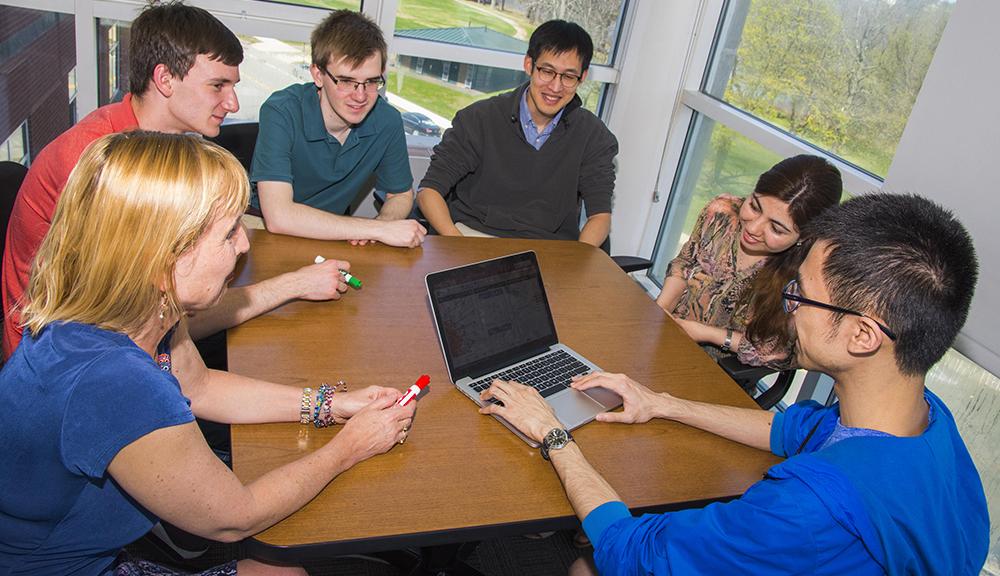
Data science research gives you opportunities to work on grand challenge problems with societal importance, including topics such as cybersecurity, healthcare, and sustainability.

Our data science graduate program offers expertise in computer science, statistics, and business topics while giving you essential opportunities to work with industry partners.

WPI’s innovative and multidisciplinary graduate program prepares students to become talented and effective leaders in this rapidly evolving field.
WPI faculty and candidates in the PhD in data science are exploring every aspect of this burgeoning field. Together, they’re fueling breakthroughs that have direct, real-world impact in health, genetic analysis, sustainability, educational software, financial trading, and more.
A faculty advisor will help you design a Plan of Study for your dissertation as well as coursework in the core areas of data analytics and big data computing, statistical foundations and mathematical analytics, and business intelligence and innovation.
Cassandra DB2 Hadoop IBM Cognos IBM ILOG CPLEX IBM SPSS Modeler InfoSphere Big Insights InfoSphere Streams Mahout Maple MATLAB
MySQL Oracle Server Palisade DecisionTools Suite R RapidMiner SAS Spotfire SQL Server Tableaux Weka
Faculty Profiles

As founding Head of the interdisciplinary Data Science program here at WPI, I take great pleasure in doing all in my power to support the Data Science community in all its facets from research collaborations, and new educational initiatives to our innovative industry-sponsored and mentored Graduate Qualifying projects at the graduate level.

Professor Kong’s research interests focus on data mining and machine learning, with emphasis on addressing the data science problems in biomedical and social applications. Data today involves an increasing number of data types that need to be handled differently from conventional data records, and an increasing number of data sources that need to be fused together. Dr. Kong is particularly interested in designing algorithms to tame data variety issues in various research fields, such as biomedical research, social computing, neuroscience, and business intelligence.

Yanhua Li is an Associate Professor in the Computer Science Department and Data Science Program at Worcester Polytechnic Institute (WPI). His research interests focus on artificial intelligence (AI) and data science, with applications in smart cities in many contexts, including spatial-temporal data analytics, urban planning and optimization.

My research focuses on compressed sensing, machine learning, signal processing, and the interaction between mathematics, computer science and software engineering. My interests range from theoretical results to algorithms for tackling practical applied problems, and I enjoy problems most when mathematical results lead to efficient software implementations for big data. I am looking forward to working with students at all levels and backgrounds who share an interest in mathematics, software, or data.

I am Associate Professor of Operations and Industrial Engineering at Worcester Polytechnic Institute (WPI), with courtesy professorships in Mathematical Sciences and Data Science. I hold a Ph.D. in Industrial Engineering from the University of Pittsburgh. My objective is to use science and technology to assist real human need by improving systems that serve vulnerable peoples, such as refugees and asylum seekers, survivors of human trafficking, and children in the foster care system.
The Data Science Community

Getting Involved
We’re data scientists – we use tools of the trade and big data analytics to innovate. Follow department happenings and industry trends via our social media channels on Facebook and LinkedIn .
Refer a Friend
Do you have a friend, colleague, or family member who might be interested in Worcester Polytechnic Institute’s (WPI) graduate programs? Click below to tell them about our programs.
Need to Earn a Master’s First? Explore Our Pioneering MS in Data Science
Not quite ready to apply for our data science PhD program since you first need to earn a master’s? Our pioneering master’s in data science dives into how to articulate findings into how to synthesize huge amounts of data and articulate findings into innovative solutions. WPI is one of a handful of universities that offers a MS in data science. Are you a working professional and prefer to study online? Our master’s in data science online makes it possible for you to advance your expertise from wherever you are conveniently online. Our core courses dive into the same on campus data-science essentials like analysis techniques, database management, and more. Maybe you’re excited about elevating your career in big data, but have questions about PhD data science salary and popular job titles. Check out our career information for data science.
Advance Your Data Science Skills with a Graduate Certificate
Individuals who know how to interpret and harness large amounts of data are in high demand and our graduate certificates are a perfect way to customize your data science skills and aspirations. Our on campus graduate certificate in data science enables students to select six courses that dive into mathematical analytics, data management, business intelligence, and more. Maybe you have a busy work-life balance and prefer to study online? Our online data science certificate brings world-class instruction right to you with flexible course offerings that enable you to enhance your data analytics skills.
Ready to Start Your Data Science Path?
If data intrigues you and you love the idea of finding patterns and revealing the information in massive amounts of data, a future in data science likely appeals to you. If you have your sights set on a PhD in data science, you can get started on the right academic path with a bachelor’s in data science . WPI’s bachelor’s program offers hands-on projects to increase your understanding of the field while giving you real skills you can use. If you’re majoring in another field, such as business or computer science, a minor in data science will give you a solid understanding of data science concepts. With a minor in data science, you’ll gain skills and learn how to apply them to your chosen discipline.
WPI is proud to be the recipient of not one, but two National Science Foundation Research Traineeship programs. The programs provide exceptionally talented graduate students with specialized training and funding assistance to join careers at the forefront of technology and innovation. The programs are for graduate students in research-based master's and doctoral degree programs in STEM. Learn more .
The BioPoint Program for Graduate Students has been designed to complement traditional training in bioscience, digital and engineering fields. Students accepted into one of the home BioPoint programs will have the flexibility to select research advisors and take electives in other departments to broaden their skills. BioPoint curriculum is designed to be individual, interactive, project-focused and diverse, and includes innovative courses, seminars, journal clubs and industrial-based projects. Learn more .
- Skip to Content
- Skip to Main Navigation
- Skip to Search

IUPUI IUPUI IUPUI

- Undergraduate Majors
- Apply to the Accelerated Program
- Master's Degrees
- Doctoral Degrees & Minors
- Minors & Certificates
- General Education
- Artificial Intelligence
- Bioinformatics
- Computer Science
- Data Science
- Health Informatics
- Health Information Management
- Library & Information Science
- Informatics
- Media Arts and Science
- Study Abroad in Greece
- Study Abroad in Finland
- Micro-Credentials
- Freshman Applicants
- Returning Students
- Master's Degree
- Doctoral Program
- Graduate Certificates
- Change or Declare your Major
- Admitted Students
- Student Ambassadors
- Virtual Tour
- Undergraduate Webinars & Information Sessions
- Graduate Student Information Sessions
- Summer Camp
- Earn College Credit
- Biomedical Informatics Challenge
- Computer Science Challenge
- Incoming Undergraduate Scholarships
- Undergraduate Scholarships
- Graduate Scholarships
- Accelerated Program Cost & Aid
- Travel Funding
- Tuition Reduction
- Peer Advisors
- Forms & Policies
- Become a Student Leader
- Student Organizations
- Honors Program
- Laptop Requirements
- Equipment Checkout
- Luddy Knowledge Base
- Student Facility Access
- Biomedical Informatics B.S.
- Health Information Management B.S.
- Informatics B.S.
- Media Arts and Science B.S.
- Bioinformatics M.S.
- Health Informatics M.S.
- Applied Data Science M.S.
- Human-Computer Interaction M.S.
- Master of Library and Information Science
- Media Arts and Science M.S.
- Find a Job or Internship
- F-1 Students & Internships
- Library & Information Science Internships
- Internship Checklist
- Forage: Virtual Job Simulations
- Forage: Earn Credit
- Network with LinkedIn
- Big Interview
- Elevator Pitch
- Cover Letter
- Informational Interview
- Interviewing
- Technical Interviewing
- The Offer Process
- The Negotiation Process
- Freelance Work
- Grant Proposal Writing
- Schedule an Appointment
- Request a Career Services Presentation
- Featured Employer Days
- Resume Reviews
- Portfolio Reviews
- Presentations and Workshops
- Employer Career Fair Registration
- Research Centers & Labs
- Undergraduate Research
- Research Events
- Luddy Strategic Plan
- Meet Fred Luddy
- Faculty Openings
- Faculty Directory
- Staff Directory
- Media Requests
- Contact Admissions
- Request Undergraduate Information
- Request Graduate Information
- Get involved
- Advisory Boards
- Advisory Board
- Department Blog
- Strategic Plan
- Multimedia Stories
- Luddy Leads Blog
- Student Showcases
- LIS Industry Speaker Series
Luddy School of Informatics, Computing, and Engineering
- Alumni & Giving
- Departments
- News & Blog
Discover novel solutions to data research problems
There’s no choice but to lead when you’re breaking new ground. Guide rapid development in an emerging field when you earn our Ph.D. in Data Science.
- Degrees & Courses
Data Science Ph.D.
A dynamic data science environment.
Graduates of our program—the first of its kind in both Indiana and the Big Ten—develop the skills to make pioneering research contributions to data science theory and practice in academic and the industrial sectors.
Our students acquire the skills to develop inventive and creative solutions to data research problems—solutions that demonstrate a high degree of intellectual merit and the potential for broader impact. The Ph.D. curriculum also prepares students to make research contributions that advance the theory and practice of data science.
A leader in data science research
The Data Science Ph.D. Program at IU Indianapolis provides a world-class education and research opportunities. Ph.D. students in the program learn fundamental Data Science methods while pursuing independent, original research in a broad variety of topics, including:
- Novel techniques for Natural Language Processing and Text Analytics.
- Applications of AI to social welfare, digital governance, cultural heritage, biomedical sciences, and environmental sustainability.
- Intelligent conversational agents and models of Human-AI collaboration.
- Data Visualization and Human-Data Interaction.
Meet our faculty
The program is in the midst of a major expansion, with over 50 graduate students joining the program in the past year alone. Multiple faculty in our department have secured high-profile research grants, including three active CAREER awards, the National Science Foundation’s most prestigious award for early-career faculty. The IU Indianapolis campus hosts the newly created Institute of Integrative Artificial Intelligence, providing an interdisciplinary nexus between Data Science, AI, and various science and engineering fields.

Sunandan Chakraborty
Assistant Professor, Data Science

Sarath Chandra Janga
Associate Professor, Bioinformatics, Data Science

Leon Johnson
Lecturer, Data Science

Kyle M. L. Jones
Associate Professor, Library and Information Science, Data Science

Bohdan Khomtchouk
Assistant Professor, Bioinformatics, Data Science

Angela Murillo
Assistant Professor, Library and Information Science, Data Science

Saptarshi Purkayastha
Associate Professor, Data Science, Health Informatics

Khairi Reda
Associate Professor, Data Science, Human-Computer Interaction

Elie Salomon
Lecturer, Data Science; Library and Information Science

Ayoung Yoon
Get your questions answered
Request information.
Contact our graduate admissions team and get your questions answered.
Meet our student ambassadors
Get to know our student ambassadors and find out what life at Luddy is like.
Information Sessions
Register for a virtual information session.
Ready to get started?
- Register for an info session
- Learn how to apply
Luddy School of Informatics, Computing, and Engineering resources and social media channels
- Schedule a Visit
Additional links and resources
- Degrees & Majors
- Scholarships
Happening at Luddy
- Pre-college Programs
Information For
- Current Students
- Faculty & Staff Intranet
Luddy Indianapolis
Ph.D. Specialization in Data Science
The ph.d. specialization in data science is an option within the applied mathematics, computer science, electrical engineering, industrial engineering and operations research, and statistics departments..
Only students already enrolled in one of these doctoral programs at Columbia are eligible to participate in this specialization. Students should fulfill the requirements below in addition to those of their respective department's Ph.D. program. Students should discuss this specialization option with their Ph.D. advisor and their department's director for graduate studies.
Applied Mathematics Doctoral Program
Computer Science Doctoral Program
Decision, Risk, and Operations (DRO) Program
Electrical Engineering Doctoral Program
Industrial Engineering and Operations Research Doctoral Program
Statistics Doctoral Program
The specialization consists of either five (5) courses from the lists below, or four (4) courses plus one (1) additional course approved by the curriculum committee. All courses must be taken for a letter grade and students must pass with a B+ or above. At least three (3) of the courses should come from outside the student’s home department. At least one (1) course has to come from each of the three (3) thematic areas listed below.
Specialization Requirements
- COMS 4231 Analysis of Algorithms I
- COMS 6232 Analysis of Algorithms II
- COMS 4111 Introduction to Databases
- COMS 4113 Distributed Systems Fundamentals
- EECS 6720 Bayesian Models for Machine Learning
- COMS 4771 Machine Learning
- COMS 4772 Advanced Machine Learning
- IEOR E6613 Optimization I
- IEOR E6614 Optimization II
- IEOR E6711 Stochastic Modeling I
- EEOR E6616 Convex Optimization
- STAT 6301 Probability Theory I
- STAT 6201 Theoretical Statistics I
- STAT 6101 Applied Statistics I
- STAT 6104 Computational Statistics
- STAT 5224 Bayesian Statistics
- STCS 6701 Foundations of Graphical Models (joint with Computer Science)
Information Request Form
Ph.d. specialization committee.
- View All People
- Faculty of Arts and Sciences Professor of Statistics
- The Fu Foundation School of Engineering and Applied Science Professor of Computer Science
Richard A. Davis
- Faculty of Arts and Sciences Howard Levene Professor of Statistics
Vineet Goyal
- The Fu Foundation School of Engineering and Applied Science Associate Professor of Industrial Engineering and Operations Research
Garud N. Iyengar
- The Fu Foundation School of Engineering and Applied Science Vice Dean of Research
- Tang Family Professor of Industrial Engineering and Operations Research
Gail Kaiser
Rocco a. servedio, clifford stein.
- Data Science Institute Interim Director
- The Fu Foundation School of Engineering and Applied Science Wai T. Chang Professor of Industrial Engineering and Operations Research and Professor of Computer Science
John Wright
- The Fu Foundation School of Engineering and Applied Science Associate Professor of Electrical Engineering
- Data Science Institute Associate Director for Academic Affairs
Smart. Open. Grounded. Inventive. Read our Ideas Made to Matter.
Which program is right for you?

Through intellectual rigor and experiential learning, this full-time, two-year MBA program develops leaders who make a difference in the world.
A rigorous, hands-on program that prepares adaptive problem solvers for premier finance careers.
A 12-month program focused on applying the tools of modern data science, optimization and machine learning to solve real-world business problems.
Earn your MBA and SM in engineering with this transformative two-year program.
Combine an international MBA with a deep dive into management science. A special opportunity for partner and affiliate schools only.
A doctoral program that produces outstanding scholars who are leading in their fields of research.
Bring a business perspective to your technical and quantitative expertise with a bachelor’s degree in management, business analytics, or finance.
A joint program for mid-career professionals that integrates engineering and systems thinking. Earn your master’s degree in engineering and management.
An interdisciplinary program that combines engineering, management, and design, leading to a master’s degree in engineering and management.
Executive Programs
A full-time MBA program for mid-career leaders eager to dedicate one year of discovery for a lifetime of impact.
This 20-month MBA program equips experienced executives to enhance their impact on their organizations and the world.
Non-degree programs for senior executives and high-potential managers.
A non-degree, customizable program for mid-career professionals.
PhD Program
Program overview.
Now Reading 1 of 4
Rigorous, discipline-based research is the hallmark of the MIT Sloan PhD Program. The program is committed to educating scholars who will lead in their fields of research—those with outstanding intellectual skills who will carry forward productive research on the complex organizational, financial, and technological issues that characterize an increasingly competitive and challenging business world.
Start here.
Learn more about the program, how to apply, and find answers to common questions.
Admissions Events
Check out our event schedule, and learn when you can chat with us in person or online.
Start Your Application
Visit this section to find important admissions deadlines, along with a link to our application.
Click here for answers to many of the most frequently asked questions.
PhD studies at MIT Sloan are intense and individual in nature, demanding a great deal of time, initiative, and discipline from every candidate. But the rewards of such rigor are tremendous: MIT Sloan PhD graduates go on to teach and conduct research at the world's most prestigious universities.
PhD Program curriculum at MIT Sloan is organized under the following three academic areas: Behavior & Policy Sciences; Economics, Finance & Accounting; and Management Science. Our nine research groups correspond with one of the academic areas, as noted below.
MIT Sloan PhD Research Groups
Behavioral & policy sciences.
Economic Sociology
Institute for Work & Employment Research
Organization Studies
Technological Innovation, Entrepreneurship & Strategic Management
Economics, Finance & Accounting
Accounting
Management Science
Information Technology
System Dynamics
Those interested in a PhD in Operations Research should visit the Operations Research Center .

PhD Program Structure
Additional information including coursework and thesis requirements.

MIT Sloan Predoctoral Opportunities
MIT Sloan is eager to provide a diverse group of talented students with early-career exposure to research techniques as well as support in considering research career paths.
Rising Scholars Conference
The fourth annual Rising Scholars Conference on October 25 and 26 gathers diverse PhD students from across the country to present their research.
Now Reading 2 of 4
The goal of the MIT Sloan PhD Program's admissions process is to select a small number of people who are most likely to successfully complete our rigorous and demanding program and then thrive in academic research careers. The admission selection process is highly competitive; we aim for a class size of nineteen students, admitted from a pool of hundreds of applicants.
What We Seek
- Outstanding intellectual ability
- Excellent academic records
- Previous work in disciplines related to the intended area of concentration
- Strong commitment to a career in research
MIT Sloan PhD Program Admissions Requirements Common Questions
Dates and Deadlines
Admissions for 2024 is closed. The next opportunity to apply will be for 2025 admission. The 2025 application will open in September 2024.
More information on program requirements and application components
Students in good academic standing in our program receive a funding package that includes tuition, medical insurance, and a fellowship stipend and/or TA/RA salary. We also provide a new laptop computer and a conference travel/research budget.
Funding Information
Throughout the year, we organize events that give you a chance to learn more about the program and determine if a PhD in Management is right for you.
PhD Program Events
May phd program overview.
During this webinar, you will hear from the PhD Program team and have the chance to ask questions about the application and admissions process.
June PhD Program Overview
July phd program overview, august phd program overview.
Complete PhD Admissions Event Calendar
Unlike formulaic approaches to training scholars, the PhD Program at MIT Sloan allows students to choose their own adventure and develop a unique scholarly identity. This can be daunting, but students are given a wide range of support along the way - most notably having access to world class faculty and coursework both at MIT and in the broader academic community around Boston.
Now Reading 3 of 4

Profiles of our current students
MIT Sloan produces top-notch PhDs in management. Immersed in MIT Sloan's distinctive culture, upcoming graduates are poised to innovate in management research and education.
Academic Job Market
Doctoral candidates on the current academic market
Academic Placements
Graduates of the MIT Sloan PhD Program are researching and teaching at top schools around the world.
view recent placements
MIT Sloan Experience
Now Reading 4 of 4
The PhD Program is integral to the research of MIT Sloan's world-class faculty. With a reputation as risk-takers who are unafraid to embrace the unconventional, they are engaged in exciting disciplinary and interdisciplinary research that often includes PhD students as key team members.
Research centers across MIT Sloan and MIT provide a rich setting for collaboration and exploration. In addition to exposure to the faculty, PhD students also learn from one another in a creative, supportive research community.
Throughout MIT Sloan's history, our professors have devised theories and fields of study that have had a profound impact on management theory and practice.
From Douglas McGregor's Theory X/Theory Y distinction to Nobel-recognized breakthroughs in finance by Franco Modigliani and in option pricing by Robert Merton and Myron Scholes, MIT Sloan's faculty have been unmatched innovators.
This legacy of innovative thinking and dedication to research impacts every faculty member and filters down to the students who work beside them.
Faculty Links
- Accounting Faculty
- Economic Sociology Faculty
- Finance Faculty
- Information Technology Faculty
- Institute for Work and Employment Research (IWER) Faculty
- Marketing Faculty
- Organization Studies Faculty
- System Dynamics Faculty
- Technological Innovation, Entrepreneurship, and Strategic Management (TIES) Faculty
Student Research
“MIT Sloan PhD training is a transformative experience. The heart of the process is the student’s transition from being a consumer of knowledge to being a producer of knowledge. This involves learning to ask precise, tractable questions and addressing them with creativity and rigor. Hard work is required, but the reward is the incomparable exhilaration one feels from having solved a puzzle that had bedeviled the sharpest minds in the world!” -Ezra Zuckerman Sivan Alvin J. Siteman (1948) Professor of Entrepreneurship
Sample Dissertation Abstracts - These sample Dissertation Abstracts provide examples of the work that our students have chosen to study while in the MIT Sloan PhD Program.
We believe that our doctoral program is the heart of MIT Sloan's research community and that it develops some of the best management researchers in the world. At our annual Doctoral Research Forum, we celebrate the great research that our doctoral students do, and the research community that supports that development process.
The videos of their presentations below showcase the work of our students and will give you insight into the topics they choose to research in the program.
How Should We Measure the Digital Economy?
2020 PhD Doctoral Research Forum Winner - Avinash Collis
Watch more MIT Sloan PhD Program Doctoral Forum Videos

Keep Exploring
Ask a question or register your interest
Faculty Directory
Meet our faculty.
- Current Students
- Faculty + Staff
- Alumni + Friends
- Parents + Family
- Community + Visitors
- Bachelor's Degrees
- Master's Degrees
- Doctorate Degrees
- Certificates
- Arts & Design
- Business & Industry
- Communications & Media
- Data Analytics & Information
- Health & Wellness
- Humanities & Social Sciences
- Music & Performing Arts
- Public Service
- Multidisciplinary
- Still Exploring & Undetermined
- International
- Bienvenidos
- Featured Videos
- College Tour
- Tuition & Aid
- Student Life
- Search Type Search Search
- Quicklinks:
- STUDENT EMAIL
- UNT DIRECTORY
- INFO FOR CURRENT STUDENTS
- INFO FOR FACULTY + STAFF
- INFO FOR ALUMNI + FRIENDS
- INFO FOR PARENTS + FAMILY
- INFO FOR COMMUNITY + VISITORS
- UNT LIBRARIES
- UNT CALENDAR
- JOBS AT UNT

Information Science Ph.D. With a Concentration in Data Science
Want more info.
We're so glad you're interested in UNT! Let us know if you'd like more information and we'll get you everything you need.
Why Earn an Information Science Ph.D. With a Concentration in Data Science?
The UNT Information Science Ph.D. program with a concentration in Data Science responds to the varied and changing needs of an information age, increasing recognition of the central role of information and information technologies in individual, social, economic, and cultural affairs.
The mission of UNT's Information Science (IS) Ph.D. program is to provide a center of excellence in graduate education and research. Its primary goals are to:
- Nurture critical and reflective thinking on the fundamental issues and elements of problems of utilization of information
- Foster an environment of substantive and productive mentoring and apprenticeship
- Prepare scholars passionate about the role of information in human affairs
- Foster cross-disciplinary thinking and research
Students are recruited to the program from a wide range of disciplines and encouraged to expand and refocus their expertise and skills in cutting-edge areas of information science that cross disciplinary boundaries. The multifaceted nature of information science warrants the focusing of resources, courses, and faculties from a broad range of academic units.
- Research and publication
- Pedagogical practices
- Critical thinking
- Leadership ability
- Data analysis
Information and Data Science Ph.D. Highlights
What can you do with an information science ph.d. with a concentration in data science, information and data science ph.d. courses you could take.
Learn More About UNT
Explore more options.
Linguistics Information Science Ph.D.
Health Informatics Information Science Ph.D.
It’s easy to apply online. Join us and discover why we’re the choice of nearly 47,000 students.

- Mission and Goals
- DEI Commitment and Resources
- In Memoriam
- The Halıcıoğlu Challenge
- 5-Year Report
- Administration
- Visiting Scholars
- Founding Faculty
- Artificial Intelligence and Machine Learning
- Biomedical Data Science
- Data Infrastructure and Systems
- Data Science for Scientific Discovery
- Data and Society
- Theoretical Foundations of Data Science
- Visiting Scholar Program
MS / PhD Admissions
- MSDS Course Requirements
- Degree Questions
- PhD Course Requirements
- PhD Student Resources
- Research Rotation
- Spring Evaluation Requirements
- Course Descriptions
- Course Offerings
- Career Services
- Graduate Advising
- Online Masters Program
- Academic Advising
- Concurrent Enrollment
- Course Descriptions and Prerequisites
- Enrolling in Classes
- Financial Opportunities
- Major Requirements
- Minor Requirements
- OSD Accommodations
- Petition Instructions
- Student Representatives
- Selective Major Application
- Prospective Double Majors
- Prospective First-Year Students
- Prospective Transfer Students
- Partnership Programs
- Research Collaboration
- Access to Talent
- Professional Development
- UCTV Data Science Channel
- Alumni Relations
- Giving Back
Give us a call or drop by anytime, we endeavor to answer all inquiries within 24 hours.

PO Box 16122 Collins Street West Victoria, Australia
[email protected] / [email protected]
Phone support
Phone: + (066) 0760 0260 / + (057) 0760 0560
Application Checklist
Applications to HDSI graduate programs must be submitted online using UCSD’s Application for Graduate Admission .
Statement of Purpose
An applicant’s statement of purpose is very important and is given careful consideration in the selection process. For additional guidelines, please refer to Statement of Purpose . There is no specific word limit, but be concise and specific in preparing your statement, giving information that demonstrates your level of preparation and potential for success in graduate school.The statement of purpose must be submitted online through the UCSD Application for Graduate Admission .
NOTE : Requests to update the Statement of Purpose are not granted after submission. Please carefully double-check edits prior to official submission.
An applicant’s Curriculum Vitae or Resume is used to gain a better understanding of the individual’s potential for success in this program. It should highlight details such as academic history, relevant work experience, skills, publications, honors/awards, etc. A resume or curriculum vitae should be uploaded to the UCSD Application for Graduate Admission .
Three Letters of Recommendation
Three (3) letters of recommendation are required. Additional letters may be submitted, however, you must submit a minimum of three (3) letters.
LORs are submitted via the online application only. For additional information about the procedures and policies for letters of recommendation, please review the UCSD Graduate Division guidelines at Procedures for Letters of Recommendation .
Transcripts
Unofficial transcripts should be uploaded online to the UCSD Application for Graduate Admission . More information about how to upload unofficial transcripts can be found on this website: Academic Records and Transcripts
Official transcripts from all prior higher education institutions attended will be required AFTER an applicant receives their official offer of admission from UCSD. Applicants who attended any campus of the University of California, including UCSD, must provide official transcripts of the UC coursework. Transcripts from UCSD may be ordered by an applicant from the Office of the Registrar. There is no charge for UCSD transcripts of record sent to departments in support of an application for graduate student.
Test Score Reports
Applicants for Fall 2024 Admission to the Data Science Graduate Programs (MS and PhD) will not need to provide a GRE score with their applications for Admission.
If applicants have already completed the GRE and would like to include their scores with their application, they can include these scores when submitting the application for review. Applicants with valid test scores should request that ETS submit the scores directly to the UC San Diego institution code 4836 ; the department codes are not needed. Information about the GRE is available from the Educational Testing Service (ETS) website.
English Language Proficiency
Demonstrated proficiency in the English Language is required for all international applicants whose native language is not English.
UC San Diego accepts both the Test of English as a Foreign Language (TOEFL) and the International English Language Testing System (IELTS) scores. To learn more about the minimum score requirements and possible exemptions, please visit UC San Diego’s English Language Proficiency website.
Students may us the following Institution code when submitting official scores: 4836 . The Department code can be left blank.
Application Fee
Applicants will be required to pay the application fee for each application submitted or to request a fee waiver at the end of the online application. Your application cannot be reviewed until this fee is paid.
- US Citizens, Permanent Residents, and Undocumented Applicants: $135.00
- International Applicants: $155.00
Applicants may submit multiple applications for the same term. Please note that each application must be submitted to a different department and to only one degree level (Master or PhD) per department.
For information regarding fee waivers, please review the Graduate Division website.
After You Apply
- The HDSI admissions team reviews applications as they are received. There is no need to follow up with the admissions team, you will receive communication regarding your status by March 2023.
Dates and Deadlines: Fall 2024 Cohort
- Application submission deadline: December 15, 2023
- *PhD DELAY* PhD applicants can expect to receive offer letters by April 15, 2024.
- **PhD DELAY** Admitted PhD students will have until May 1, 2024 to submit their decisions.
- Mandatory Orientations take place before instruction begins and are announced to admitted students.
In order to provide the tools and resources needed to achieve academic, professional, and personal development goals, the Data Science program has a committed staff available to support students and their needs.
If you have any questions or concerns regarding admission, please reach out to our team via [email protected] .

Laura Horton
Responsible for graduate student admissions and recruitment.
Back up: Julia Nemeth
What are the requirements for admission to the program?
Our program does not have specific prerequisite courses or undergraduate degree requirements for admission. Our aim is to build a diverse cohort with a range of expertise and interests.
More information regarding the courses required once admitted can be found on our MS Program Requirements and PhD Program Requirements webpages.
What is the cost of attendance for a graduate program at UCSD?
The tuition and fees breakdown for the in-person MS and PhD programs can be found on the UCSD Graduate Division Tuition & Fees webpage.
Are the in-person MS and PhD programs in Data Science STEM designated?
Yes, Our in-person graduate degrees are STEM designated.
For more information about the designation or OPT Extensions, please visit the UCSD Graduate Division STEM OPT Extension webpage.
I am having trouble submitting part of my application, who should I contact?
If you are a current or former UCSD student, you will not be able to submit your application online. Please make sure your application is complete then email HDSI’s Graduate Team ( [email protected] ) so that our staff can submit your materials for review.
For non-UCSD applicants, please reach out to the UCSD Graduate Division office via email ( [email protected] ) or by visiting their website for more contact information.
I am a current undergraduate student at UCSD, how do I apply to a graduate program in Data Science?
I am a current graduate student at ucsd, how do i change my program of study to data science, are gre scores required.
No, GRE scores are not required for the Fall 2024 cohort applications.
Please check back on this website for GRE requirements in future academic years.
I am an international student with a degree from an international institution where English was the primary language of instruction. Do I need to submit TOEFL/IELTS scores?
Non-native english speakers may be exempt from the English Proficiency Requirement (TOEFL/IELTS) if they earned or will be earning a bachelor’s, master’s, or doctoral degree with grades of B (3.0) or better from either
- A regionally accredited U.S. college or university where English is the sole language of instruction, or
- A foreign college or university which provides instruction solely in English. You may verify whether your institution meets this requirement by looking up your institution in the IAU World HIgher Education Database (WHED).
More information can be found on the UCSD Graduate Division English Language Proficiency webpage.
10 free data analytics courses you can take online

Data analytics is the science of taking raw data, cleaning it, and analyzing it to inform conclusions and support decision making. From business to health care to social media, data analytics is changing the way organizations operate.
“It’s not hyperbole to say that data analytics has really taken over the world,” says Brian Caffo, professor of biostatistics at Johns Hopkins University’s Bloomberg School of Public Health and director of academic programs for the university’s Data Science and AI Institute. “Every domain has become increasingly quantitative to inform decision making.”

Berkeley's Data Science Master's
And this space isn’t slowing down anytime soon: The U.S. Bureau of Labor Statistics projects that employment for data scientists will grow 35% from 2022 to 2032, with 17,700 new job openings projected each year on average during that decade.
Interested in becoming a data analyst? Below, we’ve compiled ten free data analytics courses to help give you a firmer grasp of this rapidly growing field.
A/B Testing
About: This course covers the design and analysis of A/B tests, which are online experiments that compare two versions of content to see which one appeals to viewers more. A/B tests are used throughout the tech industry by companies like Amazon and Google. This course is offered through Udacity.
Course length: Six self-paced modules
Who this course is for: Beginners
What you’ll learn: In this course you’ll learn about A/B testing, experiment ethics, how to choose metrics, design an experiment, and analyze results.
Prerequisites: None
Data Analytics Short Course
About: In this quick, five-tutorial course you’ll get a broad overview of data analytics. You’ll learn about the different types of roles in data analytics, a summary of the tools and skills you’ll need to develop, and a hands-on introduction to the field. This course is offered by CareerFoundry.
Course length: 75 minutes, divided into five 15-minute lessons
What you’ll learn: In this course you’ll get an introduction to data analytics. You’ll also analyze a real dataset to solve a business problem through data cleaning, visualizations, and garnering final insights.
Prerequisites: None
Data Science: R Basics
About: This program gives you a foundational knowledge of programming language R. Offered by HarvardX through the EdX platform, this course is offered for free; the paid version includes a credential. It’s the first of ten courses HarvardX offers as part of its Professional Certificate in Data Science.
Course length: Eight weeks, 1–2 hours per week
What you’ll learn: In this course you’ll learn basic R syntax and foundational R programming concepts, including data types, vectors arithmetic, and indexing. You’ll also perform operations that include sorting, data wrangling using dplyr, and making plots.
“It’s the basics of how to wrangle, analyze, and visualize data in R,” says Dustin Tingley, Harvard University’s deputy vice provost for advances in learning and a professor of government in the school’s government department. “That gets you writing a little bit of code, but you’re not doing anything that heavy.”
Prerequisites: HarvardX recommends having an up-to-date browser to enable programming directly in a browser-based interface
Fundamentals of Qualitative Research Methods
About: This course will teach you the fundamentals of qualitative research methods. Qualitative research provides deeper insights into real-world problems that might not always be immediately evident. This course is offered through Yale University on YouTube.
Course length: 90 minutes spread out over six modules
What you’ll learn: In this course you’ll learn how qualitative research is a way to systematically collect, organize, and interpret information that is difficult to measure quantitatively. This includes developing qualitative research questions, gathering data through interviews and focus groups, and analyzing this data.
“Qualitative research is the systematic, rigorous application of narratives and tools to better understand a complex phenomenon,” says Leslie Curry, a professor of public health and management at the Yale School of Public Health and a professor of management at the Yale School of Management. She adds that this approach can help understand flaws in large data sets. “It can be used as an adjunct to a lot of the really important work that’s happening in large data analysis.”
Getting and Cleaning Data
About: This course covers the basic ways that data can be obtained and how that data can be cleaned to make it “tidy.” It will also teach you the components of a complete data set, such as raw data, codebooks, processing instructions, and processed data. This course is offered by Johns Hopkins University through Coursera, and is part of a 10-course Data Science Specialization series.
Course length: Four weeks, totaling approximately 19 hours
What you’ll learn: Through this course you’ll learn about common data storage systems, how to use R for text and date manipulation, how to use data cleaning basics to make data “tidy,” and how to obtain useable data from the web, application programming interfaces (APIs), and databases.
“It’s the starting point” when it comes to data analysis, Caffo says. “Without a good data set that is cleaned and appropriate for use, you have nothing. You can talk all you want about doing models or whatnot—underlying that has to be the data to support it.”
Prerequisites: None
Introduction to Data Science with Python
About: This course teaches you concepts and techniques to give you a foundational understanding of data science and machine learning. Offered by HarvardX through the EdX platform, this course can be taken for free. The paid version offers a credential.
Course length: Eight weeks, 3–4 hours a week
Who this course is for: Intermediate
What you’ll learn: This course will give you hands-on experience using Python to solve real data science challenges. You’ll use Python programming and coding for modeling, statistics, and storytelling.
“It gets you up and running with the main workhorse tools of data analytics,” says Tingley. “It helps to set people up to take more advanced courses in things like machine learning and artificial intelligence.”
Prerequisites: None, but Tingley says having a basic background in high school-level algebra and basic probability is helpful. Some programming experience—particularly in Python—is recommended
Introduction to Databases and SQL Querying
About: In this course you’ll learn how to query a database, create tables and databases, and be proficient in basic SQL querying. This free course is offered through Udemy.
Course length: Two hours and 17 minutes
What you’ll learn: This course will acquaint you with the basic concepts of databases and queries. This course will walk you through setting up your environment, creating your first table, and writing your first query. By the course’s conclusion, you should be able to write simple queries related to dates, string manipulation, and aggregation.
Introduction to Data Analytics
About: This course offers an introduction to data analysis, the role of a data analyst, and the various tools used for data analytics. This course is offered by IBM through Coursera.
Course length: Five modules totaling roughly 10 hours
What you’ll learn: This course will teach you about data analytics and the different types of data structures, file formats, and sources of data. You’ll learn about the data analysis process, including collecting, wrangling, mining, and visualizing data. And you’ll learn about the different roles within the field of data analysis.
Learn to Code for Data Analysis
About: This course will teach you how to write your own computer programs, access open data, clean and analyze data, and produce visualizations. You’ll code in Python, write analyses and do coding exercises using the Jupyter Notebooks platform. This course is offered through the United Kingdom’s Open University on its OpenLearn platform.
Course length: Eight weeks, totaling 24 hours
What you’ll learn: In this course you’ll learn basic programming and data analysis concepts, recognize open data sources, use a programming environment to develop programs, and write simple programs to analyze large datasets and produce results.
Prerequisites: A background in coding—especially Python—is helpful
The Data Scientist’s Toolbox
About: This course will give you an introduction to the main tools and concepts of data science. You will learn the ideas behind turning data into actionable knowledge and get an introduction to tools like version control, markdown, git, GitHub, R, and RStudio. This course is offered by Johns Hopkins University through Coursera, and is part of a 10-course Data Science Specialization series.
Course length: 18 hours
What you’ll learn: This course will teach you how to set up R, RStudio, GitHub, and other tools. You will learn essential study design concepts, as well as how to understand the data, problems, and tools that data analysts use.
“That course is a very accessible introduction for anyone who wants to get started in this,” Caffo says. “It’s an overview that covers the full pipeline, from things like collecting and arranging data to asking good questions, all the way to creating a data deliverable.”
The takeaway
From businesses estimating demand for their products to political campaigns figuring out where they should run advertisements to health care professionals running clinical trials to judge a drug’s efficacy, data analytics has a wide variety of applications. Getting a better understanding of the field on your own time can be done easily and freely. And the field is only growing.
“Just about every field is having a revolution in data analytics,” Caffo says. “In fields like medicine that have always been data driven, it’s become more data-driven.”

Syracuse University MS in Applied Data Science Online
Mba rankings.
- Best Online MBA Programs for 2024
- Best Online Master’s in Accounting Programs for 2024
- Best MBA Programs for 2024
- Best Executive MBA Programs for 2024
- Best Part-Time MBA Programs for 2024
- 25 Most Affordable Online MBAs for 2024
- Best Online Master’s in Business Analytics Programs for 2024
Information technology & data rankings
- Best Online Master’s in Data Science Programs for 2024
- Most Affordable Master’s in Data Science for 2024
- Best Master’s in Cybersecurity Degrees for 2024
- Best Online Master’s in Cybersecurity Degrees for 2024
- Best Online Master’s in Computer Science Degrees for 2024
- Best Master’s in Data Science Programs for 2024
- Most Affordable Online Master’s in Data Science Programs for 2024
- Most Affordable Online Master’s in Cybersecurity Degrees for 2024
Health rankings
- Best Online MSN Nurse Practitioner Programs for 2024
- Accredited Online Master’s of Social Work (MSW) Programs for 2024
- Best Online Master’s in Nursing (MSN) Programs for 2024
- Best Online Master’s in Public Health (MPH) Programs for 2024
- Most Affordable Online MSN Nurse Practitioner Programs for 2024
- Best Online Master’s in Psychology Programs for 2024
Leadership rankings
- Best Online Doctorate in Education (EdD) Programs for 2024
- Most Affordable Online Doctorate in Education (EdD) Programs for 2024
- Coding Bootcamps in New York for 2024
- Best Data Science and Analytics Bootcamps for 2024
- Best Cybersecurity Bootcamps for 2024
- Best UX/UI bootcamps for 2024
Boarding schools
- World’s Leading Boarding Schools for 2024
- Top Boarding School Advisors for 2024

Earn Your Master’s in Data Science Online From SMU
- MyU : For Students, Faculty, and Staff
Fall 2024 CSCI Special Topics Courses
Cloud computing.
Meeting Time: 09:45 AM‑11:00 AM TTh Instructor: Ali Anwar Course Description: Cloud computing serves many large-scale applications ranging from search engines like Google to social networking websites like Facebook to online stores like Amazon. More recently, cloud computing has emerged as an essential technology to enable emerging fields such as Artificial Intelligence (AI), the Internet of Things (IoT), and Machine Learning. The exponential growth of data availability and demands for security and speed has made the cloud computing paradigm necessary for reliable, financially economical, and scalable computation. The dynamicity and flexibility of Cloud computing have opened up many new forms of deploying applications on infrastructure that cloud service providers offer, such as renting of computation resources and serverless computing. This course will cover the fundamentals of cloud services management and cloud software development, including but not limited to design patterns, application programming interfaces, and underlying middleware technologies. More specifically, we will cover the topics of cloud computing service models, data centers resource management, task scheduling, resource virtualization, SLAs, cloud security, software defined networks and storage, cloud storage, and programming models. We will also discuss data center design and management strategies, which enable the economic and technological benefits of cloud computing. Lastly, we will study cloud storage concepts like data distribution, durability, consistency, and redundancy. Registration Prerequisites: CS upper div, CompE upper div., EE upper div., EE grad, ITI upper div., Univ. honors student, or dept. permission; no cr for grads in CSci. Complete the following Google form to request a permission number from the instructor ( https://forms.gle/6BvbUwEkBK41tPJ17 ).
CSCI 5980/8980
Machine learning for healthcare: concepts and applications.
Meeting Time: 11:15 AM‑12:30 PM TTh Instructor: Yogatheesan Varatharajah Course Description: Machine Learning is transforming healthcare. This course will introduce students to a range of healthcare problems that can be tackled using machine learning, different health data modalities, relevant machine learning paradigms, and the unique challenges presented by healthcare applications. Applications we will cover include risk stratification, disease progression modeling, precision medicine, diagnosis, prognosis, subtype discovery, and improving clinical workflows. We will also cover research topics such as explainability, causality, trust, robustness, and fairness.
Registration Prerequisites: CSCI 5521 or equivalent. Complete the following Google form to request a permission number from the instructor ( https://forms.gle/z8X9pVZfCWMpQQ6o6 ).
Visualization with AI
Meeting Time: 04:00 PM‑05:15 PM TTh Instructor: Qianwen Wang Course Description: This course aims to investigate how visualization techniques and AI technologies work together to enhance understanding, insights, or outcomes.
This is a seminar style course consisting of lectures, paper presentation, and interactive discussion of the selected papers. Students will also work on a group project where they propose a research idea, survey related studies, and present initial results.
This course will cover the application of visualization to better understand AI models and data, and the use of AI to improve visualization processes. Readings for the course cover papers from the top venues of AI, Visualization, and HCI, topics including AI explainability, reliability, and Human-AI collaboration. This course is designed for PhD students, Masters students, and advanced undergraduates who want to dig into research.
Registration Prerequisites: Complete the following Google form to request a permission number from the instructor ( https://forms.gle/YTF5EZFUbQRJhHBYA ). Although the class is primarily intended for PhD students, motivated juniors/seniors and MS students who are interested in this topic are welcome to apply, ensuring they detail their qualifications for the course.
Visualizations for Intelligent AR Systems
Meeting Time: 04:00 PM‑05:15 PM MW Instructor: Zhu-Tian Chen Course Description: This course aims to explore the role of Data Visualization as a pivotal interface for enhancing human-data and human-AI interactions within Augmented Reality (AR) systems, thereby transforming a broad spectrum of activities in both professional and daily contexts. Structured as a seminar, the course consists of two main components: the theoretical and conceptual foundations delivered through lectures, paper readings, and discussions; and the hands-on experience gained through small assignments and group projects. This class is designed to be highly interactive, and AR devices will be provided to facilitate hands-on learning. Participants will have the opportunity to experience AR systems, develop cutting-edge AR interfaces, explore AI integration, and apply human-centric design principles. The course is designed to advance students' technical skills in AR and AI, as well as their understanding of how these technologies can be leveraged to enrich human experiences across various domains. Students will be encouraged to create innovative projects with the potential for submission to research conferences.
Registration Prerequisites: Complete the following Google form to request a permission number from the instructor ( https://forms.gle/Y81FGaJivoqMQYtq5 ). Students are expected to have a solid foundation in either data visualization, computer graphics, computer vision, or HCI. Having expertise in all would be perfect! However, a robust interest and eagerness to delve into these subjects can be equally valuable, even though it means you need to learn some basic concepts independently.
Sustainable Computing: A Systems View
Meeting Time: 09:45 AM‑11:00 AM Instructor: Abhishek Chandra Course Description: In recent years, there has been a dramatic increase in the pervasiveness, scale, and distribution of computing infrastructure: ranging from cloud, HPC systems, and data centers to edge computing and pervasive computing in the form of micro-data centers, mobile phones, sensors, and IoT devices embedded in the environment around us. The growing amount of computing, storage, and networking demand leads to increased energy usage, carbon emissions, and natural resource consumption. To reduce their environmental impact, there is a growing need to make computing systems sustainable. In this course, we will examine sustainable computing from a systems perspective. We will examine a number of questions: • How can we design and build sustainable computing systems? • How can we manage resources efficiently? • What system software and algorithms can reduce computational needs? Topics of interest would include: • Sustainable system design and architectures • Sustainability-aware systems software and management • Sustainability in large-scale distributed computing (clouds, data centers, HPC) • Sustainability in dispersed computing (edge, mobile computing, sensors/IoT)
Registration Prerequisites: This course is targeted towards students with a strong interest in computer systems (Operating Systems, Distributed Systems, Networking, Databases, etc.). Background in Operating Systems (Equivalent of CSCI 5103) and basic understanding of Computer Networking (Equivalent of CSCI 4211) is required.
- Future undergraduate students
- Future transfer students
- Future graduate students
- Future international students
- Diversity and Inclusion Opportunities
- Learn abroad
- Living Learning Communities
- Mentor programs
- Programs for women
- Student groups
- Visit, Apply & Next Steps
- Information for current students
- Departments and majors overview
- Departments
- Undergraduate majors
- Graduate programs
- Integrated Degree Programs
- Additional degree-granting programs
- Online learning
- Academic Advising overview
- Academic Advising FAQ
- Academic Advising Blog
- Appointments and drop-ins
- Academic support
- Commencement
- Four-year plans
- Honors advising
- Policies, procedures, and forms
- Career Services overview
- Resumes and cover letters
- Jobs and internships
- Interviews and job offers
- CSE Career Fair
- Major and career exploration
- Graduate school
- Collegiate Life overview
- Scholarships
- Diversity & Inclusivity Alliance
- Anderson Student Innovation Labs
- Information for alumni
- Get engaged with CSE
- Upcoming events
- CSE Alumni Society Board
- Alumni volunteer interest form
- Golden Medallion Society Reunion
- 50-Year Reunion
- Alumni honors and awards
- Outstanding Achievement
- Alumni Service
- Distinguished Leadership
- Honorary Doctorate Degrees
- Nobel Laureates
- Alumni resources
- Alumni career resources
- Alumni news outlets
- CSE branded clothing
- International alumni resources
- Inventing Tomorrow magazine
- Update your info
- CSE giving overview
- Why give to CSE?
- College priorities
- Give online now
- External relations
- Giving priorities
- Donor stories
- Impact of giving
- Ways to give to CSE
- Matching gifts
- CSE directories
- Invest in your company and the future
- Recruit our students
- Connect with researchers
- K-12 initiatives
- Diversity initiatives
- Research news
- Give to CSE
- CSE priorities
- Corporate relations
- Information for faculty and staff
- Administrative offices overview
- Office of the Dean
- Academic affairs
- Finance and Operations
- Communications
- Human resources
- Undergraduate programs and student services
- CSE Committees
- CSE policies overview
- Academic policies
- Faculty hiring and tenure policies
- Finance policies and information
- Graduate education policies
- Human resources policies
- Research policies
- Research overview
- Research centers and facilities
- Research proposal submission process
- Research safety
- Award-winning CSE faculty
- National academies
- University awards
- Honorary professorships
- Collegiate awards
- Other CSE honors and awards
- Staff awards
- Performance Management Process
- Work. With Flexibility in CSE
- K-12 outreach overview
- Summer camps
- Outreach events
- Enrichment programs
- Field trips and tours
- CSE K-12 Virtual Classroom Resources
- Educator development
- Sponsor an event

IMAGES
VIDEO
COMMENTS
Based in San Diego, California, National University (NU) offers a variety of online programs, including a Ph.D. in data science. NU's program requires 60 credits and takes an estimated 40 months ...
PhD in Data Science. National University is accredited by the Western Association of Schools and Colleges. 9. Stevens Institute of Technology. Located in Hoboken, New Jersey, Stevens Institute of Technology is a private research institution with an enrollment of approximately 6,125 students.
Average Graduate Tuition: $5,999/year in-state; $11,199/year out-of-state. Total Points: 8 (points were determined using in-state tuition) DSU features one of the most flexible data science Doctor of Philosophy programs in this ranking. You can take courses online or on-campus and attend full or part-time.
An online Ph.D. in data science can lead to careers in analytics, business leadership, and machine learning. The BLS projects that computer and research scientist jobs will grow 22% between 2020-2030. These professionals earned a median annual salary of $126,830 in 2020, much higher than the $41,950 for all workers.
A PhD in Data Science is a research degree that typically takes four to five years to complete but can take longer depending on a range of personal factors. In addition to taking more advanced courses, PhD candidates devote a significant amount of time to teaching and conducting dissertation research with the intent of advancing the field.
PhD in Analytics and Data Science. Students pursuing a PhD in analytics and data science at Kennesaw State University must complete 78 credit hours: 48 course hours and 6 electives (spread over 4 years of study), a minimum 12 credit hours for dissertation research, and a minimum 12 credit-hour internship.
Doctor of Philosophy in Data Science. Make informed decisions and drive growth with the 100% online Doctor of Philosophy in Data Science (PhD-DS) degree program at National University. Get an edge in the dynamic data science field by increasing your knowledge through a PhD-DS that's aligned with industry needs, including the CRISP structure.
An online Ph.D. in data science offers advanced training and research in the field of data science, including fostering expertise in data-driven decision-making, data visualization, and research methodologies. Students can expect rigorous coursework, research opportunities, and collaboration with industry professionals and faculty.
An NRT-sponsored program in Data Science Overview Overview Advances in computational speed and data availability, and the development of novel data analysis methods, have birthed a new field: data science. This new field requires a new type of researcher and actor: the rigorously trained, cross-disciplinary, and ethically responsible data scientist. Launched in Fall 2017, the …
This fully online university provides a fully online PhD program within data science with a one-on-one education model, meaning that each student is taught individually by a professor. There are 20 total courses needed to complete the program, with an approximate time of completion at just over four years. Its curriculum offers advanced ...
Learn the skills and knowledge to become a data science leader with a Ph.D. from the School of Data Science at the University of Virginia. The program offers interdisciplinary training in data engineering, software development, data policy and ethics, and research methods.
Students conduct research on cutting edge problems alongside preeminent faculty at UChicago and explore the emerging field of Data Science. As an emerging discipline, Data Science addresses foundational problems across the entire data life cycle. Tackling issues of inequity, climate change, and sustainability will require cutting edge research in artificial intelligence and data usage combined …
A PhD in Data Science is a research degree designed to equip you with knowledge of statistics, programming, data analysis and subjects relevant to your area of interest (e.g. machine learning, artificial intelligence, etc.). The keyword here is research. Throughout the course of your studies, you'll likely:
Why Online PhD in Data Science Is a Good Opportunity. During the COVID-19 pandemic, many people rediscovered online doctorate programs. To meet the demand, a big variety of schools reinvented themselves and started offering online learning options. Right now is an excellent time to apply for a doctorate program since you can enjoy a tremendous ...
Graduate Admissions. WPI's PhD in data science is interdisciplinary, drawing from Computer Science, Mathematical Sciences, and the Business School. Together, courses and dissertation research revolve around five key areas: Integrative Data Science. Business Intelligence and Case Studies. Data Access and Management. Data Analytics and Mining.
The Data Science Ph.D. Program at IU Indianapolis provides a world-class education and research opportunities. Ph.D. students in the program learn fundamental Data Science methods while pursuing independent, original research in a broad variety of topics, including: ... The program is in the midst of a major expansion, with over 50 graduate ...
Students should discuss this specialization option with their Ph.D. advisor and their department's director for graduate studies. The specialization consists of either five (5) courses from the lists below, or four (4) courses plus one (1) additional course approved by the curriculum committee. All courses must be taken for a letter grade and ...
A master's degree in data science is a newer graduate program that integrates fundamentals from computer science, probability and statistics, machine learning, and data visualization, among other subjects. In a data science master's program, you'll build key skills in areas such as machine learning, data mining and data visualization, and ...
Online Data Science Graduate Program Overview. Johns Hopkins Engineering for Professionals online, part-time Data Science graduate program addresses the huge demand for data scientists qualified to serve as knowledgeable resources in our ever-evolving, data-driven world.. Designed specifically with working professionals in mind, you will engage in a number of modern online courses created to ...
MIT Sloan PhD Program graduates lead in their fields and are teaching and producing research at the world's most prestigious universities. Rigorous, discipline-based research is the hallmark of the MIT Sloan PhD Program. The program is committed to educating scholars who will lead in their fields of research—those with outstanding ...
3-4 years. Credit Hours: 60 (with master's) or 72 (with bachelor's) Transform massive amounts of data into actionable insights with information science and technology. UNT's Interdisciplinary Information Science Ph.D. program (or IIS Ph.D. program) responds to the varied and changing needs of the information age by offering a concentration in ...
Dates and Deadlines: Fall 2024 Cohort. Application submission deadline: December 15, 2023. UC San Diego offer letters sent: March 15, 2024*. *PhD DELAY* PhD applicants can expect to receive offer letters by April 15, 2024. Student decision deadline: April 15, 2024**. **PhD DELAY** Admitted PhD students will have until May 1, 2024 to submit ...
PhD-TM in Data Science. As computer systems and high-speed processors gain greater and greater capacities, the amount of information generated can be daunting to the leader of today's organizations. It takes leadership to manage that mountain of electronic gold most efficiently and effectively. That's where those who've gained their PhD ...
Discover which universities around the world are the best for Data Science with the QS World University Rankings by Subject 2023. Register for free site membership to access direct ... Get the latest student and graduate news straight to your inbox. Sign me up. Course Matching Tool. Use our tool to find your perfect course. Answer a few ...
In as few as 18 months, earn your MS in Applied Data Science from Syracuse University, ranked #25 in Best Online Graduate Computer Information Technology Programs.
UWF's Data Science M.S. is the first fully online master's in data science in Florida. This program prepares graduates with the knowledge and skills needed to manipulate, manage and interpret data. ... Data Science, M.S. Online Graduate Tuition; Component Cost Total* In-state Tuition: $384.60 per credit hour: $11,538.00: Full Out-of-state ...
EC-Council University (ECCU) is an accredited online institution and part of the EC-Council Group, prioritizing ethical behavior, innovative thinking, scholarship, and leadership.
CSCI 5980 Cloud ComputingMeeting Time: 09:45 AM‑11:00 AM TTh Instructor: Ali AnwarCourse Description: Cloud computing serves many large-scale applications ranging from search engines like Google to social networking websites like Facebook to online stores like Amazon. More recently, cloud computing has emerged as an essential technology to enable emerging fields such as Artificial ...
Drama in science education. Drama is an activity making use of a written script as the basis for individuals to tell stories and explore meaning via non-verbal actions (performance) and dialogue (Marsella, Johnson, and LaBore Citation 2000).Baskerville, McGregor, and Bonsall (Citation 2023) draw attention to categories of learning that take place by using drama; 'learning from' (p19) by ...